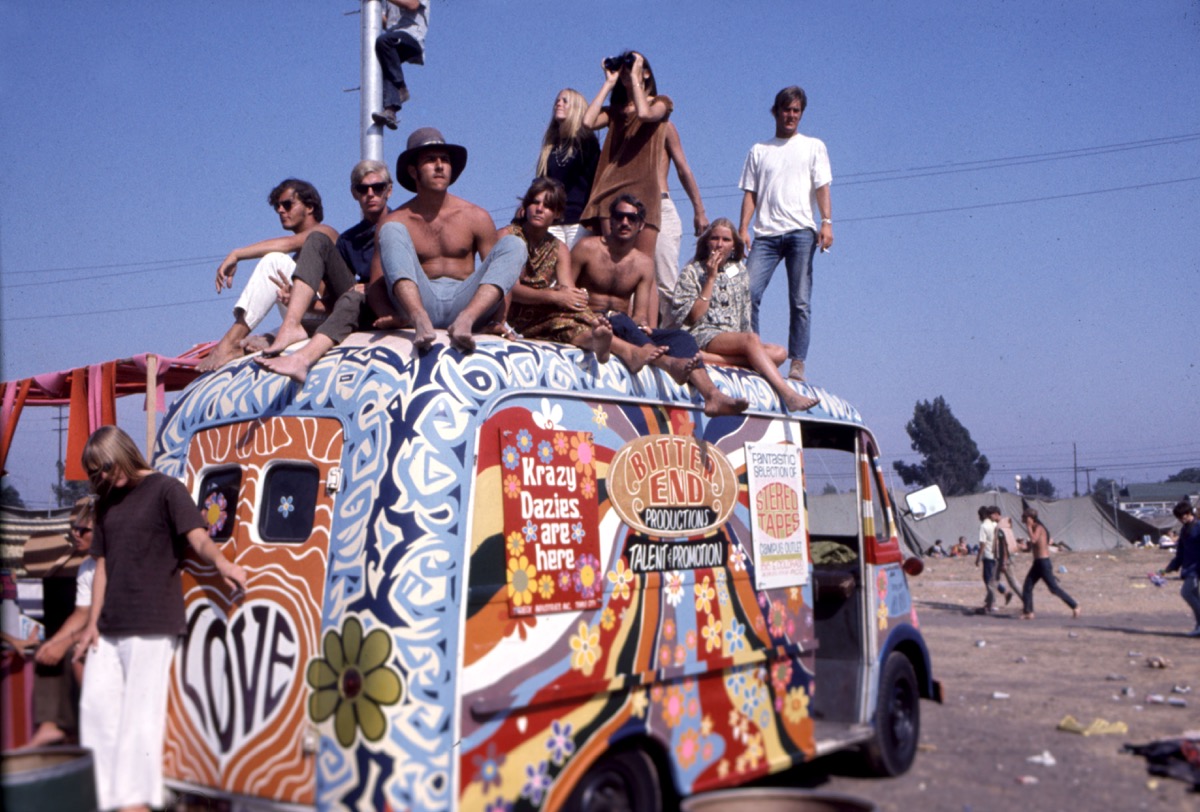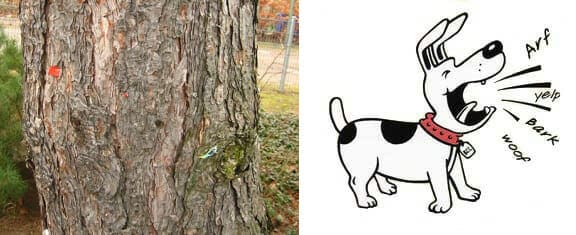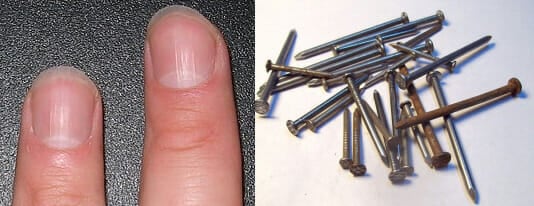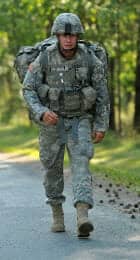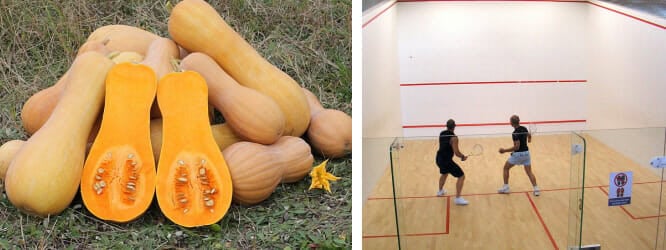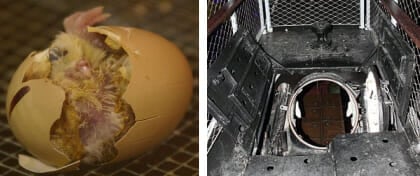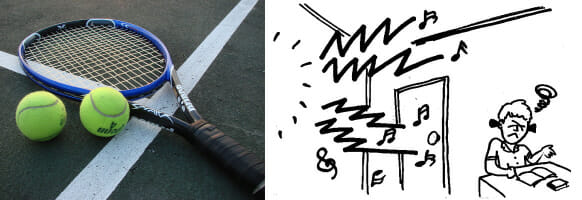
By
Last updated:
January 31, 2022
Once upon a time, there was a fair boy at the fair, and he was really fair!
There was also a bat flying around a bat, a friend of mine in a mine and a man with a bow bowing to an audience.
Welcome to the Polysemy (when a single word or phrase has multiple meanings) Fair where nothing is what it seems, and words get crazy different meanings just for the sake of fun.
But before you come in, you have to tell me what homophones, homographs and homonyms are.
If you do not know what they are (or even if you do!), you had better read this post before you enter the Fair unprepared and get lost forever!
Download:
This blog post is available as a convenient and portable PDF that you
can take anywhere.
Click here to get a copy. (Download)
What Are Homophones, Homographs and Homonyms?
They may sound dangerous and creepy, but homophones, homographs and homonyms are part of our daily life, regardless of what your mother language is.
Homophones are words that sound the same but have different meanings.
When you say “I have only one eye,” however weird that sentence might sound, the words I and eye sound exactly the same, but they obviously have different meanings.
The same happens with words such as break and brake, here and hear or hour and our, just to give you a few examples.
On the other hand, homographs are words that are spelled the same but have different pronunciations.
Take the verb read as an example.
The infinitive is pronounced /ri:d/ (with a long i), but the past tense and the past participle are pronounced /red/, as in the color red. They are written in the exact same way, but their pronunciations are different.
Finally, we have homonyms. They are words that either sound or are spelled identically but have different meanings.
Homonyms can be homophones, homographs or both, so to make things easy for you, we will be calling this post’s words homonyms unless stated otherwise.
Every language has homonyms, and language learners tend to have a rough time when trying to learn them.
Let’s have a look at the title of this post: The fair boy at the fair is really fair.
If it is the first time you have seen the word fair, you are probably having a language heart attack right now.
If you have seen this word before, though, you most likely know its meaning as a noun (funfair, carnival). But what about the other two? Keep reading!
There are several methods to learn the different meanings of words. You can look them up (search) in a dictionary, check an online translator or even ask a friend if they are around and able to help you.
From Fairs to Novels: 21 Everyday English Words with Multiple Meanings
The following 21 words are common English words that have different meanings and/or pronunciations. They can be a little tricky sometimes, but thanks to this post, you will be able to master them in no time. So, let the fun begin!
1. Fair
As you have already seen in the introduction, this word can have different meanings depending on whether it is a noun or an adjective. You know its meaning as a noun, and you probably also know one of its meanings as an adjective, but I am sure you would have never thought a carnival and a hair/skin color were spelled the same in English.
Meaning #1: a carnival; a public event where there are games, competitions, rides and entertainment
Also, in the United States, a fair is an event where farm products and animals are shown and judged.
The boy showed his horse and his two pigs at the state fair.
Meaning #2: treating someone right or in a way that does not favor other people
The boy at the fair is very fair with his siblings when they play games together.
Meaning #3: having light skin and/or hair
The fair boy at the fair is very fair with his siblings.
Since her skin is so fair, she has to be careful when she goes in the sun.
2. Saw
You probably know this word as the past tense of the verb to see, but did you know it can also be a tool and the infinitive of another verb?
Saw comes from the Old English word saga (to cut), but also from the Middle English word sawen (knife), hence its different meanings nowadays.
Meaning #1: a device or tool with sharp teeth, typically made of metal
He used a saw to cut the branch of the tree.
Meaning #2: to saw, to cut with a saw
He is going to saw the tree down with a saw.
Meaning #3: past tense of the verb to see.
I saw the saw he used to saw the tree down.
3. Fell
Now this one’s tricky.
A lot of my beginner students think this is the past tense of to feel, but actually it is the past tense of the verb to fall. What not many non-native speakers know is that it can also be the infinitive form of a different verb, and also a formal adjective!
Meaning 1: past tense of the verb to fall
The girl fell on the floor and started crying.
Meaning #2: to fell, to knock or cut down, to cause to fall
He used an ax to fell the tree.
Meaning #3: (formal) fierce, cruel, savage
He was imprisoned by his fell enemy.
4. Found
This word is another example of the past tense of a verb that is also the infinitive of a different verb.
Meaning #1: past tense and past participle of the verb to find (to come upon by chance, to locate)
I found a lot of old books in the attic yesterday.
Meaning #2: to found, to set up or establish, to base on, to provide a basis for
We want to found a new translation company.
5. Bow
Bow is a word that can have several different meanings. It is a homograph because the pronunciation is slightly different between the noun and verb form. As a noun, for example, you can wear one around your neck or use one to attack someone. As a verb, you can use it to show respect.
Don’t you love English!
Meaning #1: to bow, to bend forward at the neck or waist in order to greet someone or show respect
We must all bow before the queen.
Meaning #2: a knot made by tying a ribbon into two or more loops, often referred to as bow tie
He is wearing a green bow tie.
Meaning #3: a weapon used for shooting arrows
The hunter had a bow and many arrows.
6. Crane
I still remember when I learned this word myself. I imagined a giant machine that transformed into a bird. I have never forgotten this word!
Meaning #1: a big machine with a long arm used by builders to lift or move big objects
I think we are going to need a crane to lift that statue.
Meaning #2: a tall bird that has a long neck and long legs; it lives near water
It is impossible to observe (see) a crane here. There is no water around.
7. Date
This is an easy one.
If you are a romantic person, this word will probably make you think of special occasions with a partner. If time is important for you, you will see a date as a day on a calendar. Both options are correct, but there is more!
Meaning #1: a specific day of a month or year
What is the date today?
Meaning #2: a situation where two people who have or want to have a romantic relationship do some activity together
I would love to go on a date with you.
Meaning #3: the person you go on a date with
Mary is my date for tonight.
Meaning #4: to date someone, to do some kind of activity with a person you have or want to have a romantic relationship with.
Mary and I are dating.
Meaning #5: to date something, to write the date on something
Please, do not forget to sign and date your exam.
8. Minute
Here we have a homograph. Minute is pronounced /minit/ when it refers to time. It can also refer to size, in which case it is pronounced /mai’niut/.
Meaning #1: a unit of time equal to 60 seconds
We have been waiting for 20 minutes.
Meaning #2: always in the plural (minutes), the official record of everything that is said and done during a meeting
Ms. Roche will be taking the minutes during the meeting.
Meaning #3: an adjective meaning tiny, very small
With this new device, we are able to see even the most minute particles.
9. Second
If you are interested in etymology (study of words), you will like this word!
Second has two main meanings, one referring to time and one referring to something or someone coming after first. I was surprised to find out both these meanings come from the same Latin word secundus (following, next in time or order).
Apart from being a noun, second can also be a verb.
In this case, the origin of the word is from the Latin word secundare (to assist, to make favorable).
Meaning #1: occupies the second position in a series, importance or rank
Soup is my second choice.
Meaning #2: (always plural) another serving of food taken after you have finished the first one
Do you want seconds?
Meaning #3: a unit of time equal to 1/60 of a minute
It took him 35 seconds to open the box.
Meaning #4: to second, to approve something, to agree with somebody
I am tired. Let’s go home.
I will second that.
10. Type
They say that everyone has a type, but what exactly does that mean?
You can type in different kinds of types, enjoy different types of food and have different types in reference to people. It all depends on the meaning of type you are referring to.
Meaning #1: a particular kind of thing or person
I do not like this type of food. It is too greasy.
Meaning #2: the kind of person someone likes
Bea is totally my type.
Meaning #3: the different kinds of printed letters
Please, do not use the italic type. Use bold.
Meaning #4: to type, to write with a typewriter or a computer keyboard
I can type 200 words per minute.
11. Nail
Every time I hear the word nail, I think about the program “Nailed it!,” which I really recommend you watch if you love cooking and comedy, and you want to listen to some American English to improve your language skills.
Meaning #1: a piece of metal that is sharp at one end and flat at the other, usually used to attach things to wood
I used the biggest nail I had to hang the picture frame.
Meaning #2: the hard covering at the end of our fingers and toes
Sarah gets her nails painted every Tuesday.
Meaning #3: to nail, to attach something with a nail
We need to nail those boards.
Meaning #4: (slang) to nail, to do something perfectly or in an impressive way
I nailed the final test. I am so proud of myself!
12. Bark
What do dogs and trees have in common? Dogs bark and trees have bark!
I find it very interesting that a tree’s bark and to bark come from different origin words.
The hard covering of plants probably comes from the Old Norse word börkr (bark, likely related to the word birch). The sound dogs make comes from the Old English word beorcan (to bark, to utter an abrupt, explosive cry).
Meaning #1: the outer covering of a tree
Some types of bark are very beautiful.
Meaning #2: the loud sound made by a dog
His dog gave a very loud bark.
Meaning #3: to bark (from a dog or a person), to make a short loud sound
If her dog does not stop barking, I will call the police.
Stop barking at me and try to calm down.
13. Mine
If I tell you I like to mine in this mine because it is mine, you may or may not understand what I am saying, but you will after you have a look at the following meanings of the word mine.
Meaning #1: that which belongs to me
I like to mine in this mine because it is mine.
The blue bike is mine.
Meaning #2: a tunnel from which minerals are taken
I like to mine in this mine because it is mine.
He works in a gold mine.
Meaning #3: to mine, to dig a mine or to take away from a mine
I like to mine in this mine because it is mine.
She likes to mine for crystals.
14. Season
Even though the two main meanings of the word season do not seem to be related, they have an almost common ancestor, and once you understand its origin, it totally makes sense.
Season comes from the Old French word seison (a period of the year, proper time).
To season comes from the Old French word assaisoner (to ripen, to improve the flavor of).
These two Old French words are related. When the time was right (seison), fruits and vegetables grew ripe (assaisoner), which made them more palatable (tasty). Neat!
Meaning #1: one of the four periods into which the year is divided; a particular period of time during the year.
My favorite season is winter.
It is flu season.
Meaning #2: to season, to add salt, pepper or other spices to give something more flavor
Season to taste and serve hot.
15. Bat
Did you know that Batman got his name from an animal? Have you ever seen Batman use a bat to bat someone? No, not the animal, the stick!
Notice how, similarly to nail with a nail, you can say to bat with a bat. Do you see a pattern already?
Meaning #1: a long rounded stick used to hit a ball
Mendoza gave me his baseball bat.
Meaning #2: to hit with a bat
I want to bat next.
Meaning #3: an animal with wings and a furry body
I am afraid of bats.
16. Row
The main meaning of this word is a line of people or things that are next to each other.
Additionally, row can also be a verb that means to move a boat through the water with the use of oars.
Meaning #1: a straight line of people or things that are next to each other; a row of seats (in a theater or stadium).
We are going to arrange the desks in five rows of six desks each.
Meaning #2: to row, to move a boat through water by using oars
I like to row my boat in the calm lake.
17. Water
I love looking at my students’ faces when I tell them that water can be a verb.
Indeed, as it happens with many words in English, nouns can be used as verbs. In this case, the noun water, which we all know, can be used to mean to pour water on something, as on a plant, for example.
Meaning #1: a clear liquid with no color, smell or taste that falls from clouds in the form of rain, forms seas and lakes and is used for drinking, bathing, washing, etc.
I love drinking water in the morning.
Meaning #2: to water, to pour water on something; to give an animal water to drink
Please, water my plants while I am in Spain.
18. Boot
Some of us know the verb to boot means to start a computer.
British people call the trunk of a car a boot, and Americans often use this word when talking about cowboy boots.
But there is more you can learn about this word.
Meaning #1: a covering for the foot normally made of leather or rubber
I cannot find my winter boots anywhere.
Meaning #2: the trunk of a car
They found the missing money in the boot of his car.
Meaning #3: to boot, to force to leave a place; to fire
They booted James yesterday!
Meaning #4: to boot, to lock a Denver boot onto the wheel of a car so that it cannot move.
The parking attendant booted my car.
19. Club
Club has several meanings, ranging from a group of people who participate in a specific activity to a place where you can listen to music, eat some food and drink alcohol.
Other meanings include a metal stick used in golf, a wooden stick used as a weapon and even a suit in a deck of cards! That is polysemy at its finest!
Meaning #1: a group of people who meet to participate in an activity
The chess club has 200 members already.
Meaning #2: the place where members of a club meet
I will meet you in front of the chess club at 7 p.m.
Meaning #3: a business that provides entertainment, music, food, drinks, etc.
They are opening a new dance club near your house next weekend.
Meaning #4: a metal stick used for hitting a golf ball
My daughter is using my golf clubs. Can I borrow yours?
Meaning #5: a heavy wooden stick that is used as a weapon
One of the attackers hit me with a club.
Meaning #6: (plural) one of the suits in a deck of playing cards
I got the ten of clubs.
Meaning #7: to club, to hit a person or an animal with a stick or object
He clubbed the poisonous snake in his bedroom.
20. Key
What if I told you that the main definition of the word key is just one of over a dozen?
Do not panic, I will not make you learn all the different meanings of key, but it would be awesome if you learned the main ones.
Meaning #1: a device you use to open a lock or start a car
I think I have lost my keys.
Meaning #2: something that is necessary to do or achieve something
The key to learning English is practicing every day.
Meaning #3: any of the buttons of a typewriter or computer
I love typing without looking at the keys.
Meaning #4: used as an adjective to mean extremely important
He is a key worker in our company.
Meaning #5: (informal) to key, to have the most important part in something
Marcus keyed the victory for the Eagles.
21. Novel
We normally think of books when we hear the word novel, but novel can also be used as an adjective to mean that something is new and different.
Meaning #1: a long written story, normally dealing with imaginary people and events
I have published five novels so far.
Meaning #2: new and different from what has been known before
His novel approach to the problem helped us find a solution.
Phew! There you have it, 21 everyday English words with multiple meanings!
My advice is that you learn all the different meanings of a word at once when you are acquiring (learning) new vocabulary (or expanding your word bank).
If a word is very polysemic, at least learn its main meanings. This will save you time when you come across that word again in the future.
As you have been able to see in this post, by learning just one of the meanings of a word you are leaving a lot of information behind. In order to avoid that, one of the best solutions is to spend a little more time with each word you learn.
Download:
This blog post is available as a convenient and portable PDF that you
can take anywhere.
Click here to get a copy. (Download)
Many English words have multiple meanings. This means that the same word, with the same spelling and pronunciation may have more than one meaning. Sometimes the meanings may be very different. This can be confusing for people learning English. You may wonder,” How do I know what the meaning is?” The best way is rely on context, illustrations, or diagrams in the text. However, if you still are not sure of the meaning, look it up. A dictionary will tell you all the meanings of any word. This posting cannot discuss every word with multiple meanings. There are simply too many of them. In this posting, however, I talk about 25 common words with multiple meanings. These are word you may see and hear in your daily life. I show you parts of speech, definitions, and example sentences for each meaning of each word.The download at the end will give you additional practice understanding words with multiple meanings.
Here is the free English video lesson I taught on YouTube:
Subscribe to our YouTube Channel to see all of our lessons and get the latest videos right away!
You can download the practice sheet NOW!
Below is a list of common words with multiple meanings.
B
- bank
2. bark
3. bill
4. break
5. bug
C
6. charge
7. company
8. current
D-H
9. date
10. fair
11. fast
12. fly
13. hit
J-N
14. jam
15. left
16. mine
17. nail
P-R
18. patient
19. pool
20. pupil
21. run
S-T
22. season
23. set
24. take
25. turn
You now know many common English words with multiple meanings. Often you can guess the meaning of the word through context. If that is not helpful, however, don’t hesitate to look the word up. The download will give you additional practice understanding words with multiple meanings.
You can download the practice sheet NOW!
Idioms of the day
- no picnic–This means something is difficult and not pleasant. I’m glad I moved, but making all the preparations was no picnic.
- turn a blind eye to–This means to not notice a very obvious problem. Her husband comes home drunk every night, but she turns a blind eye to his problems. She insists that he’s not an alcoholic.
With new words being added to the dictionary on an annual basis, the English language is always evolving. And in addition to the new words that are added every year, there are also new definitions that get tacked on to previous entries based on the way word usage changes. For instance, while the word bully today describes someone with a mean spirit, it actually used to mean something much sweeter. And while you can use the word girl to clearly describe a young female these days, that wasn’t always the case. To update your language knowledge, we’ve rounded up the everyday words that once meant something else. And for more tidbits about the English language, check out the 20 Words You Won’t Believe Are in the Dictionary Now.
Nowadays, if you say something is awful, you’re not being kind. However, in the past, it was actually a term that people used to praise things, seeing as it literally meant that someone or something was «worthy of awe.» As awful became more negative, the word awesome largely replaced it in terms of its original meaning.
Centuries ago, the term cheater was used to describe the royal officers who looked after the king’s escheats, or the land he acquired when someone died without a legal heir. However, because of the shady ways these officers went about their jobs, the word «cheater» eventually became synonymous with someone who lies, tricks, and defrauds—and this is how we define the word today. And for more terms that have changed, check out the 60 Words People Pronounce Differently Across America.
In the 1300s, people who were naughty had naught, or «nothing.» In other words, they were poor. But nowadays, the word is used to describe someone not as poor, but as evil or improper.
The original meaning of nice used to be, well, not so nice. The adjective actually comes from the Latin word «nescius,» meaning «unaware» or «ignorant.» When it was picked up by the English language in the early 1300s, it described a «stupid, ignorant, or foolish» person. Ouch!
Flirting with someone in today’s sense is what most people would consider to be flattering. If you were to flirt with someone based on the word’s original meaning, then what you’d be doing is less sweet and more savage. In the 1500s, this term was actually used to describe a quick motion or jerk—something like a flick. And for more word facts, check out 5 Words to Ditch From Your Vocabulary ASAP, Experts Say.
When someone describes something as egregious, they are trying to say that it stands out—and not in a good way. But when it was first coined, the word actually meant the exact opposite. According to Merriam-Webster, the adjective was once used as a compliment to describe someone «who had a remarkably good quality that placed him or her eminently above others.»
No one wants to be called a bully—unless you’re using its original meaning, that is. In the archaic sense, bully means «sweetheart,» as it was derived from the Dutch word for lover.
The word silly has seen quite a few definitions throughout history. Derived from Old English, the adjective has been used over the years to mean everything from «happy» and «fortunate» to «innocent.» Eventually, though, the word somehow became synonymous with ignorance, thus bringing us to its current meaning of «foolish.» And for more silly words, check out The 30 Funniest Words in the English Language—And How to Use Them.
When something today is described as artificial, it’s usually a far cry from what’s considered to be a masterful creation. However, that’s exactly what the adjective used to refer to. If something was artificial back in the day, it was artfully or skillfully constructed.
Being called brave is quite the praise by today’s standards. But the word’s original definition—which is «showy» or «gaudy»—is much less complimentary. And for more etymology lessons, check out 50 Words You Hear Every Day But Don’t Know What They Mean.
There are a lot of things that can make someone nervous nowadays: job interviews, talking to someone they’re attracted to, public speaking… the list goes on and on. In the 1600s, however, nervous in this context wouldn’t make sense, seeing as it was originally used to described someone who possessed great strength.
Fantastic is an adjective used to describe something that is extraordinarily good. But seeing as it was derived from the Latin word phantasticus—meaning «imaginary»—this word was originally used to describe something that only exists in the imagination. So, technically, a unicorn would be fantastic in either sense of the word!
A young female is typically referred to as a girl today. When the word was first used in the Middle Ages, however, it referred to any young person, regardless of their gender.
Guy, man, dude, fellow—they’re all monikers used to refer to the male species. But you wouldn’t want to just throw the word guy around a few centuries ago; in the 1800s, it was used to describe a person of grotesque appearance.
If someone were to give you a clue today, they would be giving you a hint about something. But when the word was first coined, someone who was giving out clues was actually giving out something more tangible: balls of yarn.
Today, fathom is just another word for «understand.» But way back when, it was used for measurement purposes and described the length of someone’s outstretched arms (about six feet!). Can you fathom that?
Manufactured, when used in its original sense, describes something that has been produced by hand. On the contrary, today people generally describe something as manufactured when it has been mass-produced in a factory by machinery.
If you’re a stylish, neatly groomed man, someone today might call you a Dapper Dan. However, if you were to use the word according to its original meaning, then this wouldn’t make sense. Seeing as it’s derived from the German word tapfer for «brave,» dapper was originally used to describe someone as bold and daring—not in their fashion choices, but in their endeavors and undertakings.
If you’re a passenger, you’re just someone who’s along for the ride. But the original meaning of the word passenger is someone who is traveling, fleeting, or just passing by, typically by foot.
The term pretty is derived from various words in other languages that meant «cunning,» «tricky,» and «skillful»—and therefore, it makes sense that the adjective was originally used to describe a sly person. But nowadays, it’s used to positively describe someone’s appearance rather than their deceitfulness.
Radical is an adjective used to describe anything extreme that shakes up the fundamental nature of something, and it’s typically employed in regards to social or political activism. However, the word actually comes from the Latin word for «rooted,» and it was once used to describe the opposite of extreme: something rooted, basic, and fundamental.
It’s no fun being sad or unhappy. But it wouldn’t have been such a bad thing a long time ago. In Old English, to be sad meant to be satisfied or content, usually in regards to feeling full from a meal.
It’s a good thing to have success nowadays. But in earlier times, it could go either way, seeing as success originally described both positive and negative outcomes alike.
You know a villain as any evil person, typically in a movie, novel, or play. But in Old English, this word simply referred to anybody who worked on a country estate, such as a farm laborer.
The original meaning of the word terrible is similar to its definition today, only way more extreme. When you described something as terrible back in the day, it meant that it caused genuine fits of terror; today, people use it to describe anything that’s mildly bad—even a terrible movie. And for more words you should probably stop using, Cut These 20 Negative Words from Your Life and Be Instantly Happier.
Download 500+ English Phrases
A number of English words are spelled the same way and pronounced the same way, but have different meanings.
Easy Vocabulary Words
bark
The noun bark refers to the outer covering of a tree. The verb bark refers to the sound a dog makes.
nails
The hard parts on your fingers and toes are your nails (you can also say fingernails and toenails, more specifically). Nails are also thin, sharp metal pieces used in construction.
jam
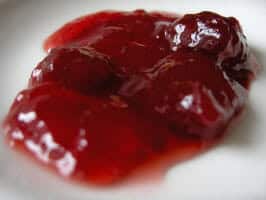
The verb jam means to put something into a space that is too small for it. For example you would jam a week’s worth of clothes into a small backpack.
A traffic jam is when the cars on the road are very slow or stopped.
pool
A pool (or swimming pool) is a man-made area of water, for swimming. Pool also refers to a game where you try to put the colored and numbered balls into the holes around the edges of the table. It can also be called billiards.
mine
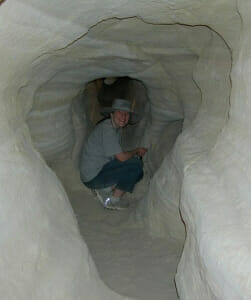
Mine is also a noun. It can refer to the place where minerals are dug out of the earth (this activity is called mining, and the people who do it are called miners).
A mine or landmine also refers to a bomb that is buried underground; it will explode when someone steps on it or drives over it. These are used in war.
Intermediate Vocabulary Words
bolt
A bolt is a type of metal fastener. The word bolt is also used for a single ray of lightning (a lightning bolt). Finally, bolt is a verb meaning to run extremely fast.
season
A season (noun) is a period of the year with a particular climate/weather (spring, summer, fall, winter). The verb season means to apply spices or flavorings to food. These spices or flavorings are called seasonings. For example, you might season a chicken before roasting it in the oven.
novel

The word novel can also be used as an adjective to mean especially new, unusual, or different. For example, a novel approach to solving a problem.
draft
The noun draft refers to a current of air into an enclosed space. For example, if there’s a space under your front door, there will be a draft in the house and it might get cold.
Draft as a noun also refers to a version of a document, plan, or drawing. A rough draft is a version that has not yet been revised, and the final draft is the final version of it.
If a country has a draft, it means the citizens must obligatorily participate in the military. Draft can also be a verb in this case – a person can be drafted to serve in the military.
squash
The word squash refers to a family of vegetables that have hard exterior shells, and we eat the inside part. The picture shows just one type of squash; there are many.
Squash is also an indoor sport played with rackets and a ball.
Finally, the verb squash means to crush something (compress/destroy it with pressure). You would squash a spider if you saw it crawling across your kitchen floor. If you put something heavy on top of your bread when loading your grocery bags, the bread would get squashed.
Advanced Vocabulary Words
buckle
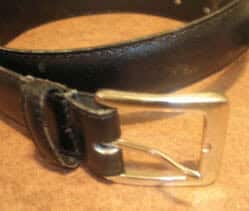
The other meaning for the word buckle is to collapse, especially under a lot of weight or pressure. For example, a person’s legs might buckle if they faint (become unconscious). If you buckle under the stress or your job, it means you break down emotionally.
current
The adjective current describes something that is modern or happening now.
Current as a noun refers to the direction and speed of flow of a liquid (such as water in the ocean or in a river), gas, or electricity.
harbor
A harbor (noun) is a sheltered area of water that is deep enough so that ships can anchor there.
The verb harbor means to provide shelter. For example, it is a crime to harbor a fugitive (a criminal who is running away from the police or legal authorities). You can also harbor negative feelings such as resentment or a grudge, meaning to keep those feelings alive inside you.
hatch
Hatch (verb) refers to the process of a baby bird coming out of its egg.
A hatch (noun) is an opening in the floor, ceiling, or wall of a ship or aircraft, often having a door on hinges.
racket
A racket is a piece of sports equipment containing a round frame and netting – used in tennis, squash, badminton, and other games.
The noun racket also means loud, often chaotic noise. For example, how can I study when the party next door is making a racket?
Get a free e-book when you sign up for English lessons by e-mail:

José is in his third and final week with me on a home stay full immersion course and has come to the conclusion that the English Language is extremely confusing and frustrating! Especially when it comes to all those words that have multiple meanings. I have to confess that he has got a point.
Take the word “run” for example. It has 179 meanings according to Dictionary.com whilst the word “take” has 127 definitions! The following infographic that was compiled by Kaplan International together with Dictionary.com highlights the 10 English words with the most meanings in the English Language. You can view this infographic here on the Kaplan website.
Kaplan has taken each word and categorised them according to the different parts of speech, for example, verb, noun, adverb, adjective and so on as well as verb phrases and idioms. As this list is very long, I’ve decided to break this list in two parts.
Part 1 will deal with the first 5 words. I’ve shown some examples of the different verb and noun meanings and verb phrases for each word.
1. RUN
Verb
- My dog loves to run about in the park (move quickly with legs)
- She runs a very successful business (manages)
- The bus company runs a regular weekend service (offer a service)
- Don’t leave your car engine running/ try running the computer programme and see if it works (machine: working)
Noun
- I always go for a 10k run in the mornings.
- The play has had a successful run in the West End. (a period of time)
- I do the school run every morning and my husband does it in the afternoon (a journey that a train, ship, car and so on does regularly)
Verb Phrases
- Her withdrawal meant that her opponent was given a clear run for the nomination (you can progress without anyone stopping you)
- He gave Tom a good run for his money (competing so well with someone that they cannot defeat you)
- He is on the run from the law (trying to escape or hide from the police)
2. TAKE
Verb
- Don’t forget to take an extra pair of shoes (move something or someone from one place to another)
- Take a deep breath ◆ James took a sip of his drink ◆ I took a quick look at the audience (to perform an action or series of actions)
- I took a course in origami at college ◆ I’ve taken my driving test three times (to study or take an exam in a particular subject)
Verb Phrases
- I like chocolate but I can take it or leave it (to not care whether you have, see or do something – informal)
- It takes all sorts (used for saying that you find someone’s behaviour surprising or strange but will accept it – spoken)
- Take it from me, this restaurant is excellent. (used to emphasize that what you’re saying is true and people should believe it – spoken)
3. BREAK
Verb
- Be careful that you don’t break those glasses (separate into pieces by dropping)
- If you break the speed limit, the penalties are high ◆ break the law. (don’t obey rules or the law)
- When the news first broke, he was no where to be found ◆ breaking news ( if news breaks, it becomes publicly known)
- Why don’t we break now and meet again after lunch? (stop what you’re doing for a period of time)
Noun
- Doctors and nurses often work very long hours without a break ◆ Let’s take/have a break.
- This could be the lucky break he’s always wanted (an opportunity that helps you achieve success)
- She decided to make the break from marketing after eighteen years (a time of major change in one’s life).
Verb Phrases
- He’s been breaking his back getting the house ready in time for the baby’s arrival (working very hard)
- I think we’ve broken the back of this project now. (British English – to finish the hardest part of a task)
- In their first year, the company broke even. (when a company doesn’t make a profit or a loss)
- I want to break free (as sung by Freddy Mercury – to escape from someone or something that is holding you or controls you)
4. TURN
Verb
- She turned around and smiled at me (change position)
- When you get to the junction, turn right (change direction)
- She could not concentrate on her book. All she seemed to be doing was turning the pages without reading them.
- After years as an amateur dancer, she turned professional ( change and do something different)
- It has turned cold again ( change and become something else)
Noun
- Oh no, is it my turn again to wash the dishes?! ◆ Is it my turn to roll the dice? (in a group and it’s your time to do something)
- The debate over drugs in sport took an unexpected turn yesterday ◆ The situation took a turn for the better/worse (a change in a situation)
- He took the wrong turn and that took him miles away from his destination (change of direction)
Verb Phrases
- He was stopped at every turn by the rigid rules (wherever or whenever someone tries to do something)
- He did her a good turn by offering her the job (an action that helps someone – also applies in the opposite “a bad turn”)
- I hope I’m not speaking out of turn, but I preferred the original version (to say something that you shouldn’t say in case you offend someone or you have no right to say it)
- The mansion was built at the turn of the century ( the time at the end of one century and the beginning of the next)
5. SET
Verb
- “Tea is served,” he told them and set the tray on the table. (put something in a position)
- I’ve set the alarm for 6am ◆ You can set the iPhone so that it does an automatic backup (to make equipment ready)
- Have you set a date for the wedding? (to decide when something will happen)
- The Bank of England sets the interest rate ◆ They set the price of the house too high. (to decide the price or value of something)
- I have set the team three challenges/goals/objectives/tasks (to give someone something to achieve)
Noun
- a set of keys ◆ a set of guidelines ◆ a complete set ◆ a chess set ( a group of things)
- the literary set ◆ the jet set◆ a set of friends (a group of people that share the same interests)
- a film set ◆ a stage set (theatre, film – place where a film or play is made)
Verb Phrases
- The drivers’ demands were not met, setting the stage for a prolonged transport strike (create the conditions for something to happen)
- They are a company that has set the standard for excellence in service (perform an activity to a level that other people need to achieve)
- Dinner will be ready soon. Could you please set the table? (put cutlery and plates on the table)
- After lunch I set to work on the mountain of paperwork on my desk (start working in a determined and enthusiastic way)
The above examples are just a few that I have selected here. Please do share with me any other meanings you know and use.
I will deal with the other five words in my next post (Part 2) so look out for it!
If you liked this post, please share it and don’t forget to subscribe to my blog if you don’t want to miss out on my posts.
Ciao for now
Shanthi
From Wikipedia, the free encyclopedia
This is the List of words having different meanings in British and American English: A–L. For the second portion of the list, see List of words having different meanings in British and American English: M–Z.
Asterisked (*) meanings, though found chiefly in the specified region, also have some currency in the other region; other definitions may be recognised by the other as Briticisms or Americanisms respectively. Additional usage notes are provided where useful.
A[edit]
| Word | British English meanings | Meanings common to British and American English | American English meanings |
|---|---|---|---|
| AA | The Automobile Association (US: AAA) | Alcoholics Anonymous | American Airlines |
| A&E | the accident and emergency (casualty) department of a hospital (US: emergency room, ER)[1] | Arts & Entertainment (name of a television network)[1] | |
| accumulator | rechargeable battery[2] (technical)
a type of bet[3] (US: parlay) |
one that accumulates, as a type of computer processor register or a hydraulic accumulator[2] | |
| ace | good, excellent (informal) | a one in a suit of playing cards someone who is very good at something (tennis) a winning serve in which the receiver does not touch the ball fighter pilot who has shot down at least 5 enemy aircraft an asexual person (slang) |
(v.) to perform outstandingly *; esp., to achieve an A (on a school exam) (n.) the best starting pitcher in a rotation on a baseball team |
| advert | (n.) a contraction of advertisement[4][5][6][7][8] (US: ad) | (v.) to turn the attention to or refer to something[9][4][5][6][8] | |
| advocate (n.) | Scottish, also Isle of Man, Channel Islands or South African, lawyer who appears in higher courts (rest of UK: barrister) | someone who supports or speaks for a particular position generic term for a lawyer (v.) to recommend or support |
|
| air marshal | a senior air force officer (equivalent to a USAF Lt. General)* | an undercover law enforcement officer on board a commercial aircraft, also known as a sky marshal | |
| à la mode | fashionable | with ice cream (ex. Apple pie à la mode) | |
| allotment | a parcel of land in a community garden | the amount of something allocated to a particular person | |
| alternate | (adj.) done or occurring by turns; every second, every other («on alternate weeks») (n.) one that alternates with another |
(adj.) constituting an alternative, offering a choice (UK usu. & US also alternative) («use alternate routes») «alternative», unconventional («alternate lifestyles») (n.) an alternative *; a substitute |
|
| amber | orange-yellow traffic light (US: yellow light) | orange-yellow colour fossilised resin a material used in the construction of some tobacco pipes’ stems (Amber) female given name |
|
| anaesthetist (UK), anesthetist (US) | physician trained to induce anaesthesia (US: anesthesiologist) | someone who induces anesthesia. | a critical care experienced graduate level educated Registered Nurse who is nationally certified to induce anesthesia |
| anchor | a position in a tug of war team device for mooring ships by providing a firm fix to the seabed (anchorman/anchorwoman) the last member of a relay team to compete |
a type of radio or TV presenter («a news anchor»). See news presenter for a description of the different roles of a newscaster, an American news anchor, and a British newsreader. A dowel or fastener, usually made of plastic, that enables a weight-bearing screw to be attached to a wall (UK: wall plug); Rawlplug (trademark) |
|
| anorak | a parka (slang) a socially awkward person obsessively interested in something (syn. US: geek, nerd; dweeb; etc.) |
hooded, rainproof outerwear that lacks a full-length zipper in the front (UK: cagoule) | |
| apartment | suite of rooms set aside for a particular person (rare), usu. rented housing unit in a larger building implying luxury (In other words, a narrower definition than the US.) (Overlapping with the rare usage in reference to stately homes or historic properties which have been converted into residential units.) | usu. rented housing unit in a larger building, regardless of luxury level (usu. flat in UK)– cf. s.v. condominium | |
| appropriate (v.), appropriation (n.) | to take (money) to oneself, to filch or misappropriate | to take (money) (there is considerable overlap but difference of emphasis) | to dispense (money), to budget |
| Asian | originating from India, Pakistan, Bangladesh or Sri Lanka (South Asian) | originating from the continent of Asia | originating from East Asia or continental Southeast Asia |
| ass | donkey slow-witted or stupid person, often in combination (dumb-ass) unpleasant or unthinking person (less common colloquially) («you ass») |
(often vulgar) buttocks (UK: arse); also, by synecdoche, the person («your ass is dead»); also (vulgar) anus (short for asshole) (vulgar) sex («get some ass») (adv.) a postpositive intensive (i.e., to add emphasis to an adjective) («He drove a big-ass truck») badass: someone of formidable strength or skill, e.g. «such a badass guitar player»[10] |
|
| athletics | Sport comprising the events in track and field, cross country running, road running and racewalking | Athletic sports in general, (e.g. College athletics) | |
| attorney | an agent or representative authorised to act on someone else’s behalf («attorney-in-fact», «power of attorney») (Attorney General) main legal advisor to the government |
(or attorney-at-law) a lawyer (UK: barrister (England, Northern Ireland, Wales)/advocate (Scotland) or solicitor, depending on the actual profession) (District attorney, prosecuting attorney) local public official who represents the government in the prosecution of criminals (archaic in Br. Eng. for lawyer) |
|
| aubergine | the plant Solanum melongena, or its fruit (US: eggplant) | an aubergine-like colour (US also: eggplant) |
B[edit]
| Word | British English meanings | Meanings common to British and American English | American English meanings |
|---|---|---|---|
| backside (n.) | posterior, buttocks | (as two words, back side) rear of anything[11][12][13][14] | |
| banger (n.) | a sausage, as in «bangers and mash» an old motor car in a state of disrepair (US: beater or jalopy) |
a type of firework | a particularly club-friendly beat or song a gang member (gang-banger) a party- usually a youth party |
| bang(s) | small explosions or reports; (v.) have sexual intercourse with (vulgar slang) |
locks of hair on forehead (UK: fringe) | |
| banker | a railway locomotive that temporarily assists the train hauled by another up a gradient (US: helper) | one who works in a bank | |
| base | foundation, starting point; many meanings in sciences, architecture, politics, military installation, etc.; see base | in baseball, one of the three places a runner can stand in safety; hence in many fig. senses, off one’s base (crazy), to get to first base (esp. in neg. constr., to get a first important result); more recently (slang), a metaphor for one of three different stages in making out (q.v.) – see baseball metaphors for sex; more s.v. home run | |
| bash | Have a go – to try to achieve something, as in «have a bash at this crossword» | to strike physically to attack verbally a party or celebration «they’re having a little bash this weekend» (orig. US, but now probably more common in UK than US) |
|
| bath | (pl.) swimming pool (v.) to bathe, or give a bath to, example have a bath (US: take a bath meaning bathe) |
(n.) plumbing fixture for bathing *(US: bathtub) (n.) the act of bathing |
(n.) a bathroom (esp. a half bath which has a sink and toilet but no shower stall or bathtub, or a 3/4 bath which has a sink, toilet, and shower stall, but no bathtub) |
| bathroom | room containing a bath (US: bathtub) or shower, other washing facilities, and usu. (but not necessarily) a toilet | room, in a home or hotel room, containing a toilet, related washing facilities, and often, but not necessarily, a shower or bathtub (Hence «Going to the bathroom» is a euphemism for relieving oneself, regardless of place, such as «I went to the bathroom in my pants»*) | |
| beaker | drinking vessel without a handle, or one (with or without handles) made of unbreakable plastic for the use of children (US: sippy cup) | flat-bottomed vessel, with a lip, used as a laboratory container. | |
| beater | person who flushes game from concealment so it can be shot at by ‘the guns’ something or someone that beats |
used car or bicycle in very poor condition (UK: banger) (slang) wifebeater (q.v.) a sleeveless undershirt (from the stereotype that poor men who wear them beat their wives, perhaps from Jackie Gleason in «The Honeymooners» TV series (50s/60s US) or more likely from the costume of the character Stanley Kowalski in the play «A Streetcar Named Desire») (UK: vest) |
|
| beaver | beard; a bearded man (archaic slang) | aquatic rodent known for building dams woman’s undepilated external genitalia (obscene slang) |
vagina (slang) |
| bender | derogatory expression for a gay man, referring to the act of bending over to permit buggery. | an expression for a binge drinking spree. | |
| bespoke | (esp. of apparel) made to the customer’s specification (US: custom-made, tailor-made) | pret. of bespeak | |
| bill | The Bill=the police (slang, poss. from Old Bill) | invoice; request for payment (also US: check, tab) a proposed law before it is voted on by a legislature |
a piece of paper money (UK: note/banknote) |
| billion | (very obsolete) a million millions (1012) (UK and US: trillion) | thousand million (109) (now standard in both UK and US) (traditional UK[citation needed]: milliard) (see also Long and short scales) | 109 |
| bin | (v.) to throw away. (bread bin) container for storing bread (US: breadbox) |
(1) a waste container (2) a usu. large receptacle or container for storage («a grain bin»; «Scrooge McDuck’s money bin») | |
| bird (np.) | one’s girlfriend or any young female (slang; getting rarer[15] and considered derogatory by some) prison sentence (slang) |
a feathered animal of the class Aves an aircraft (aviation slang) |
insulting hand gesture involving shaking one’s fist towards someone with knuckles pointing towards the person being insulted and the middle finger extended (used chiefly in «flipping someone the bird») (slang) |
| biscuit (n.) | baked sweet or savoury cake-like item, usu. flat, which is hard when baked and softens over time (colloquially bikkies for sweet biscuits) (US: cookie (sweet biscuit), cracker savoury biscuit) (to take the biscuit) to be very surprising (US: take the cake) |
a piece of wood used in joinery to join two larger pieces together | type of quick bread served with savory foods (UK: similar to a savoury scone, or similar in consistency to a croissant) |
| blinder (n.) | excellent performance in a game or race (slang) «e.g. he played a blinder» | either of two flaps on a horse’s bridle to keep it from seeing objects at its sides (UK: blinker, also used in US)
(wear blinders) (colloq.) state of being oblivious, unresponsive to changing circumstances. Myopic, tunnel vision. |
|
| blinkers | leather flaps on a bridle used to restrict a horse’s lateral vision*(US usu.: blinders) | lights on a car that indicate the direction about to be taken *(UK: indicators) | |
| block (n.) | a building (block of flats, office block) | a solid piece of something to obstruct (basketball) a blocked shot, or (plural) in the low post position near the basket, as in «on the blocks» |
in a city, the portion of a street between adjacent intersections or an informal rough unit of distance derived from the length of the same. The usage to mean a single large building was common in the Western US until the early 20th century. |
| bloody | expletive attributive used to express anger («bloody car») or shock («bloody hell»), or for emphasis («not bloody likely») (slang, today only mildly vulgar) *(similar US: damn («damn car»)) | having, covered with or accompanied by blood | considered a euphemism for more emphatic swear words |
| blow off | to break wind | to perform oral sex upon | to fail to turn up to meet somebody, to disavow or fail to meet an obligation (UK: blow out) («I’m just too busy, I’ll have to blow you off for this evening.») |
| bog (n.) | toilet (slightly vulgar slang) (bog off) go away (slightly vulgar slang, often jocular) |
wetland that accumulates appreciable peat deposits | A plot of artificially floodable farmland used to grow cranberries (a cranberry bog) |
| bogey | dried nasal mucus usu. after extraction from the nose (US: booger) (informal) | the score of one over par in golf | an unidentified aircraft, often assumed to be that of an enemy
alternate spelling of «Bogie» (nickname of Humphrey Bogart) |
| boiler (n.) |
|
|
A car (1930s slang) |
| bomb | a striking success; used in the phrases «go (like) a bomb» and «go down a bomb»; Go like a bomb also means, when used of a vehicle, to go very fast | an explosive weapon | (v.) to be a failure («the show bombed»); also as n. (n., used with the) something outstanding («that show was the bomb»); sometimes spelled da bomb |
| bombardier | corporal in the Royal Artillery – see Bombardier (rank) | crew member of a bomber responsible for assisting the navigator in guiding the plane to a bombing target and releasing the aircraft’s bomb load – see Bombardier (air force) (UK: bomb aimer) | |
| bonk | act of sexual intercourse, or to have sexual intercourse (slightly vulgar slang) (US: boink) | blow to the head (n. and v.) to suffer glycogen depletion in an endurance sporting event; see hitting the wall |
|
| bonnet | hinged cover over the engine in a car (US: hood) | hat tied under chin worn by a baby or (archaically) a woman | |
| boob (n.) | a mistake (slang); (v.) to make a mistake (US: blooper) | woman’s breast (slightly vulgar slang) | stupid person |
| boob tube | woman’s shoulderless, strapless top (US: tube top) | (the boob tube) television (slang) | |
| boost | to (figuratively) lift up; to improve, increase, revitalize. | to (literally) lift up, especially a person: booster cushion*, a cushion used to increase the height of a seat (esp. in a car) to steal, especially from a retail establishment (i.e., shoplift) |
|
| boot | storage compartment of a car (US: trunk) | footwear covering lower leg to kick something hard to start up a computer |
(Denver boot, car boot) device used to render cars immobile (UK: wheel clamp) to expel (UK: give someone the boot *)(«I have been given the Order of the Boot», Winston Churchill) to vomit (slang) to shoot up (with intravenous drugs) (ex: to boot cocaine or heroin; slang) |
| booty | treasure or the proceeds of looting | (African American Vernacular English, but widely appropriated elsewhere), esp. female buttocks as in «Shake that booty» (booty call) invitation to a sexual encounter (slang)[16][17] |
|
| boss | the person you report to at work | cool, totally awesome (slang) e.g. «That is a boss Zefron poster» | |
| bottle | courage («he’s got some bottle») (slang) (US: moxie) to fail to do something through fear («he’s bottled out», «he bottled it») (slang) to attack somebody with a broken bottle (slang) |
container for liquids (the bottle) alcohol, heavy drinking (synecdochical slang) |
|
| box | a gift in a box, hence Boxing Day genital protector used in cricket (US similar: protective cup) (the box) television set (slang) (US: idiot box, boob tube) a box stall in a barn any of various box-like structures, such as: signal box (US: switch/signal/interlocking tower) telephone box (US & UK also: telephone booth), more at call box witness box (US: witness stand) either one of the two marked areas adjacent to the goalmouth on an association football pitch (see here) see also box junction |
(n.) rigid container (v.) to attack using one’s fists (n.) general-purpose computer (e. g. «this box needs its hard disk re-formatted») |
any of various areas on a baseball diamond (as for the batter, or the pitcher, the catcher, etc.) female genitalia (obscene slang) * (box canyon) a canyon with vertical walls (boxcar) a type of enclosed railroad freight car (UK: goods van) a three-ball «frame» for one player in candlepin bowling (New England) the genital area (ex: kicked in the box; vulgar slang) |
| brace bracers braces | over-the-shoulder straps to support trousers *(US usu. suspenders, q.v.) | support that steadies or strengthens something else
devices for straightening teeth |
leg supports (UK: callipers) tertiary enclosing punctuation: { } (UK: curly brackets) |
| brackets | enclosing punctuation: ( ) (US & UK also: parentheses); more at braces | supports for shelves, etc. attached to a wall
enclosing punctuation: square brackets [] (US: brackets/crochets), curly brackets {} (US: braces) |
secondary enclosing punctuation: [] (UK: square brackets) |
| brew (n.) | tea | beer
coffee |
|
| brilliant | excellent, of the highest quality (rarely sarcastic) | very bright (of a light or a brain) very intelligent |
|
| bud | undeveloped shoot which normally occurs in the axil of a leaf or at the tip of a plant stem | marijuana (slang) hand-rolled marijuana cigarette (slang), compare joint shortening of ‘buddy’, used to address strangers assuming a non-existent familiarity (UK: similar: mate) |
|
| buffet | railway carriage containing a refreshment counter selling snacks and drinks, esp. on a train on which a full restaurant car (US: dining car) service is not provided | refreshment counter or bar;
a meal set out on a table, etc. for diners to serve themselves |
a type of sideboard |
| bug | insect of the order Hemiptera pathogen, bacteria, germ covert listening device (orig. US) defect in software (orig. in a machine) (orig. US) an enthusiast of something (orig. US) Volkswagen Beetle (v.) to apply a covert listening device (orig. US) (v.) to annoy (colloquial) |
any of various insects *(nontechnical usage) an important person («a big bug»); also, someone crazy (as in «firebug», a pyromaniac)* to go away, depart, also from a responsibility (used with out) (bug off) to go away (often as a command) (from UK bugger, q.v.) |
|
| bugger | (buggered) 1. broken, not working (typically of mechanical devices, e.g. «the engine’s buggered») (slang); 2. syn. for bothered (e.g. «I didn’t do it. I couldn’t be buggered.») (slang) (bugger up) to make a mess of something (slang) (bugger off) (imperative) go away, leave me alone (slang) |
(usually vulgar) to engage in, or someone who engages in, anal sex[20][21][22][23] a form of address for either a person or item, either jocular («he’s a generous bugger», «I finally found the little bugger!») or less so («he’s a mean bugger») (slang) |
term of endearment, often used for children (slang)
a bug (insect) |
| buggy | 2-wheeled horse-drawn lightweight carriage baby transport vehicle also called (UK) pushchair (US: stroller) any of various light cart or cars («a golf buggy») |
(slang) an automobile (orig. US) see baby transport for details see also dune buggy |
4-wheeled horse-drawn lightweight carriage baby transport vehicle also called (US) baby carriage (UK: pram) regional (esp. South) for shopping cart (UK: trolley) (marsh/swamp buggy) a type of motor vehicle for marshland (slang) caboose (horse and buggy) something obsolete (as from before the invention of the automobile) |
| bum | to engage in anal sex (vulgar slang) | to cadge («can I bum a cigarette off you?») (slang)
buttocks[24][25] (colloquial) (US: butt) |
hobo, homeless person poor quality (slang) to sadden (often used with «out») injured or lame («a bum knee»)[26] |
| bumps | a type of rowing race a method of marking someone’s birthday (see Birthday customs and celebrations) |
a set of small protuberances | |
| bunk | to be absent without authorization:
bunk off, to play truant from school (US: play hooky) |
type of bed, where two small beds are stacked on top of each other (UK bunk (up) with implies sharing a bed, rather than merely a room) nonsense as in «History is bunk» (from bunkum) |
group of plain beds used as no-frills lodging (UK: dormitory, q.v.); also used as a verb («I bunked with them in their room»; «The cabin could bunk about 18») |
| bureau | a type of writing table | a public office or government agency | a type of chest of drawers |
| burn (n.) | (Scotland and Northern England) narrow river, stream – more s.v. creek | wound caused by heat, or chemical agents, etc. | (n.) clearing (as in a forest) made by burning vegetation |
| bus (v.) | to travel by bus | to clear (as tables) in a restaurant; to work as a busboy | |
| butcher | (have a butcher’s) to have a look (rhyming slang: butcher’s hook=look) | to kill and cut up an animal for meat to kill messily, or someone who does so one who cuts and sells meat |
to make a big mess of things; botch («butcher it up»; «I butchered the spelling») |
| butchery (n.) | slaughterhouse, abattoir | a cruel massacre a butcher’s trade |
a botch |
| butt (n.) | (n.) the (larger) end of anything, a stub; also, a cigarette a sudden blow given by the head of an animal a large wooden cask a person mocked by a joke (v.) to strike bluntly (as with the head) (butt in) to interfere when uncalled for (orig. US) |
(colloquial) buttocks (UK usu. bum); hence butthead * (n.) (butt-in) one who butts in (v.) to cut off the end (of a log) (butt out) to stop interfering |
|
| buzzard | a bird of prey of the genus Buteo | vulture (slang) |
C[edit]
| Word | British English meanings | Meanings common to British and American English | American English meanings |
|---|---|---|---|
| calipers (n.) | (n.) A metal support for a person’s leg and/or ankle. (US: ankle braces, leg braces)[27][28] | (n.) An instrument for measuring external or internal dimensions, having two hinged legs resembling a pair of compasses and in-turned or out-turned points.[27] | |
| callbox (n.) | telephone booth (UK also telephone box) | roadside emergency telephone | |
| call for (v.) | to require or advocate | to predict or anticipate («The forecast calls for rain») | |
| campsite (n.) | area or park for people to camp in (US: campground) | spot for a particular person or group to camp, often within a campground (UK: pitch) | |
| can | (n.) small metal container (v.) to place in such a container (modal v.) to be able to |
(v.) to fire someone from a job (UK: sack) (n.) toilet (slang), jail (n.) buttocks[29] |
|
| canteen (n.) | food service location usually at a work place or institution (US: cafeteria) | a box with compartments for storing eating utensils, silverware etc. a military mess kit water bottle, typically used for military or camping purposes. |
|
| candy (n.) | (candy floss) heated sugar spun into thin threads and collected into a mass, usually on a stick; something pleasing but having little worth (US: cotton candy for both senses) | (v.) to sugarcoat, or boil with sugar (as fruit) to sweeten edible, sweet-tasting confection containing sugar, or sometimes artificial sweeteners, and often flavored with fruit, chocolate, nuts or artificial flavours; a piece of candy (UK: sweets, confectionery) |
(eye candy) (derog.) someone who is physically attractive (See also arm candy.) |
| canfield (n.) | a patience (solitaire) card game (US: Klondike) | a patience (solitaire) card game (UK: Demon) | |
| car (n.) | railway vehicle, only in combination (e.g. «restaurant car», except London Underground «carriage»)
(archaic) street tramway vehicle |
motorcar (n.) (UK, q.v.)/automobile | nonpowered unit in a railroad or railway train («railroad car»; «a passenger/freight/parlor/dining/baggage etc. car») (see s.v. motor car, trolley; UK: cf. s.v. carriage, coach, wagon) elevator (q.v.) cage |
| caravan | towed recreational vehicle containing accommodation (US: travel trailer) to take such a vehicle on holiday |
overland trading convoy | a type of minivan sold in the United States (see Dodge Caravan) |
| caretaker (n.) | one who takes care of a building, e.g. a school (US: janitor; cf. s.v. custodian) one put in charge of a farm after eviction of tenant |
one who takes care of someone or something stopgap government or provisional government |
one who takes care of real estate in exchange for rent-free living accommodations * |
| carnival | (n.) a street festival typically involving music, dancing and processions | (adj.) suggesting a festive atmosphere | (n.) a travelling circus or fair (UK: funfair) comprising amusement rides |
| carousel (n.) | a moving luggage/baggage display unit, most often at airports | a rotating fairground ride (UK: merry-go-round, roundabout) | |
| carriage (n.) | railway coach (q.v.) designed for the conveyance of passengers the conveying of goods or the price paid for it («carriage-paid»); «handling» |
4-wheeled horse-drawn private passenger vehicle | (baby carriage) baby transport vehicle featuring the infant lying down facing the pusher (UK: perambulator, pram) – more s.v. buggy a shopping cart (primarily in North Atlantic states) |
| carry on, carryon | (informal) have a love affair[30] | (colloquial) carrying-on, unruly behaviour (v.) continue (Keep Calm and Carry On) |
luggage that can be carried aboard an aircraft, bus, or train (UK: hand luggage or baggage) |
| cart | usu. 2-wheeled one-horse vehicle (as that used in farming) | a lightweight wheeled vehicle, as for shopping, serving, carrying baggage, etc. (UK: trolley) cartridge (primarily related to video games) |
|
| casket (n.) | a small box, as for jewels, particularly an antique | The type of coffin with upholstery and a half-open lid, any coffin | |
| casualty (person) | often, someone who has been wounded; hence casualty department (US: emergency room) | generally, someone who has been injured or killed | often, someone who has been killed; see also casualty insurance |
| catapult | small Y-shaped handheld projectile weapon often used by children (US: slingshot) | a type of medieval siege engine an aircraft catapult |
(v.) rise quickly |
| chaps [?] | men or boys (but increasingly used for people of either sex; in the singular it still almost exclusively refers to a male, «Guys» has become a more popular phrase in the UK) (US & UK: guys) one’s friends («the chaps») (US & UK: the guys) cheeks – as in Bath Chaps – stewed pigs’ cheeks, a delicacy |
leather leggings originally worn by cowboys and designed to protect the legs against thorns (sometimes pronounced shaps), short for «chaparajos», or the similar items worn by motorcyclists as a form of leg protection | |
| check | examine for a particular purpose a pattern of coloured squares a warning given in chess |
leave items in the care of someone else (e.g. at a cloakroom; hence checkroom) (also check mark) mark used to denote ‘correct’ or indicate one’s choice (UK: tick, q.v.) request for payment, especially at a restaurant; bill written order for a bank to pay money (UK: cheque) |
|
| checker | one who checks (e.g. an inspector) | a store or shop cashier (almost always a grocery store) (checkers) a popular board game (UK: draughts) to mark with alternating colored squares (UK: chequer) |
|
| cheers (interjection) | said to express gratitude, or on parting (slang). Also cheerio. | used as a toast or valediction | |
| chemist | pharmacist, pharmacy (US similar: druggist, drugstore) | student or researcher of chemistry | |
| chew | a chewy sweet[31] (US: taffy) | to break down food with the teeth, masticate (chew on something, chew something over) (colloquial) to consider or discuss [31][32] |
referring to or using chewing tobacco |
| chip in | to express one’s opinion (as in a conversation); to «chime in» | to contribute (as money) (orig. US) | |
| chips (food) | Long cuts of deep fried potato, usu. thick cut resembling American steak fries | French fries, in (orig. UK) phrase fish and chips | thin slices of fried potato*(UK: crisps) |
| chippie, chippy | carpenter (slang); fish-and-chip shop (slang) (Ire: chipper) |
(adj.; chippy only) aggressively belligerent, especially in sport | loose woman (dated slang); the N. American bird Chipping sparrow |
| chum | friend (sometimes sarcastic) | (n.) waste products from fish processing (heads, tails, blood etc.) often used for shark fishing
(v.) to spread fish entrails etc. in the hope of luring sharks. «We chummed the water all morning, but never spotted any dorsal fins.» Has some cross-over usage metaphorically in non-fishing situations. |
|
| cider | an alcoholic drink derived from apples (US: hard cider) | unfiltered, unpasteurized, unfermented apple juice[33] | |
| Cinderella | a team which underachieves, or is overshadowed by successful neighbouring rivals* | fairy tale character | a lowly sports team or individual which enjoys an unexpectedly good run in a tournament |
| city | a large town, in particular a town created a city by charter and/or containing a cathedral. (Some cathedral cities, such as St Asaph, St David’s and Wells, are mere villages.) «The City»: the City of London, London’s financial centre, hence financial markets and investment banking more generally (c.f. US Wall Street) |
A human settlement with a large population | a usually large or important municipality governed under a charter granted by the state (however some smaller towns in the US are cities); an element of a standard mailing address (UK «postal town») |
| clerk | administrative worker | (or salesclerk) store or shop worker (UK: shop assistant) hotel employee at the reservation desk (US & UK: receptionist) |
|
| closet | any small room (esp. Northern England, Scotland, & Ireland); hence water closet, a room containing a flush toilet, later the toilet itself | a private chamber for retirement in secret; (come out of the closet) to reveal what was secret (especially in relation to homosexuality) (closet queen) (colloq., disparaging) someone who keeps their homosexuality secret[34][35][36] |
a cabinet or wardrobe, as for utensils or apparel; in the latter case oftenest built-in; hence e.g. walk-in closet, linen closet, and skeleton in the closet *(UK also: in the cupboard) * |
| coach | bus with a higher standard of comfort, usually chartered or used for longer journeys* tutor, usu. private, who prepares pupils for examinations* railway carriage* |
enclosed horse-drawn passenger carriage sports trainer |
extracurricular sports teacher at a school (UK: PE teacher) lowest class on a passenger aircraft (UK: economy) |
| cob | (mainly Northern & Central Eng.) a type of bread roll («Chip cob», «ham cob», «pack of six cobs please») (pl.) large globules of sweat («I’m sweating cobs») |
The portion of a corn plant around which the kernels grow. a building material a type of horse a male swan |
|
| cock | (n.) form of address to a man to gain attention or greet e.g. «Wotcha cock!»[37][38][39][40] a popular personage e.g. Cock o’ the North (v.) (cock up) * to make a mess of things; cock-up[38] (n.) is the act or the resulting state of affairs (n.) a male bird; esp., an adult male chicken (US oftenest rooster)[41][37][38][39][40] (n.) nonsense[38][41] |
(n.) penis (vulgar slang) (v.) to set the hammer or firing pin of a loaded firearm ready for firing; likewise, to «cock the shutter» of an old, spring-activated camera (n.) A type of tap, faucet, or valve (e.g., a stopcock). |
|
| collect | To win a bet (from the idea of picking up the winnings) | (v.) to gather together, to pick up; (orig. US) to pick up a person or thing (n.) short prayer read during the first part of a church service as practised by certain parts of the Christian faith; mainly Anglican and Roman Catholic. |
(adj., adv.) charged to the receiver («to call collect», to reverse the charges) («a collect call») [from collect on delivery] |
| college | part of the name of some state secondary schools (US approx.: high school) and many independent schools (US approx.: prep school) | constituent part of some larger universities, especially ancient universities
educational institution between school and university (e.g. sixth form college (UK), technical college, college of further education (UK), community college (US)) vocational training institution (technical college in the US) professional association which usu. grants some form of professional qualifications, mostly in the medical field (e.g. Royal College of Surgeons, American College of Surgeons) |
an independent institution of higher education (as a small university or a division of a university) granting bachelor’s degrees generic term for higher education, but only at the undergraduate level |
| comforter | a baby’s dummy (q.v.) | one who comforts | quilted bedspread (UK: duvet) |
| commissioner | professional head of the Metropolitan Police Service and City of London Police (US: chief of police) | A civilian public official in charge of a municipal governmental department, and particularly of a police department member of any commission |
|
| commode | small cabinet portable toilet for use in a room without plumbing |
normal toilet, in a bathroom (q.v.) | |
| compensation | the act of compensating damages awarded for a legal wrong (workers’ compensation) payment to injured workers |
remuneration received by employees (unemployment compensation) compensation paid to an unemployed person (as a laid-off worker), arising from government resources |
|
| concession | reduction in price (discount) for a certain category of person | the action of conceding in politics, the action of a candidate yielding to another an area within one country that is administered by another |
a lease or grant of premises or land for a particular use, or the so contracted-out service, as in concession stand, i.e. a counter, stand or area at public entertainment venues where snacks or drinks are sold, often at inflated prices a concession stand |
| condominium | a political territory (state or border area) in or over which two sovereign powers formally agree to share equally dominium (in the sense of sovereignty) and exercise their rights jointly | (also condo) a type of joint ownership of real property (as an apartment building) in which portions of the property are commonly owned and other portions are individually owned; an apartment in a condominium | |
| constable | technically, a police officer of any rank, but usu. understood to mean a police officer of the lowest rank (one who holds no other more specific rank) (US: officer or patrolman) | peace officer in a township without an organised police department official who serves summonses (UK: bailiff or sheriff’s officer) |
|
| construction | the act or process of building or constructing; a structure; the construction industry from construe: the assigning of meaning to ambiguous terms |
road construction and maintenance work; roadwork («a construction area/zone») (UK: roadworks) | |
| cooker | an appliance for cooking food (US: cookstove, stove, range) a cooking apple, a large sour apple used in cooking |
a pot or utensil for cooking in («pressure cooker», «rice cooker», «slow cooker») | a person who cooks (UK: cook) |
| cookie | a bun (Scotland)
a biscuit of a particular variety, usually containing chocolate chips (often referred to as a «chocolate chip cookie») |
a small packet of information stored on users’ computers by websites | a small, flat baked cake *(UK usu. biscuit, q.v.) fellow, guy *(«a tough cookie»); also, an attractive girl * (that’s the way the cookie crumbles) that’s how things go (to toss one’s cookies) to vomit (cookie-cutter) trite, banal a cook or Culinary Specialist (Army and Navy slang) |
| cop | to take («cop a look at this», «cop one of these») (slang) to be blamed for, be caught («he’ll cop it!») (slang) |
police officer (short for «copper») (slang) (cop a feel) to grope (slang) |
(cop a plea) (law, orig. slang) to plead guilty to a lesser offence to not be tried for a graver charge; compare plea bargain (cop a squat) to take a seat (slang) |
| copper | low value coin, brown or ‘copper’ coloured (currently 1p and 2p coins) large copper vessel used for heating water and washing clothes (archaic) |
the metallic element copper police officer (slang, orig. UK) |
|
| coriander | the leaves of the coriander plant, used as a herb (US: cilantro or Chinese parsley) | the plant Coriandrum sativum dried seeds of this plant |
|
| corn | wheat in England, oats in Scotland and Ireland
any of various cereal plants or grains (US usu.: grain), also in combination (e.g. cornfield, a field of any cereal) |
in both dialects, the principal crop cultivated in a particular region Indian corn, in corn on the cob, corn flakes, popcorn horny swelling on the foot |
Zea mays; originally known as Indian corn (q.v.; UK usu.: maize or sweetcorn); hence cornfield, cornstarch (UK: corn flour), cornbread, cornball, cornblade, etc. something corny *, hence cornball |
| cot | infant bed; hence cot death (US: crib) | camp bed | |
| cotton wool | soft cotton wadding, used for cleaning wounds or make-up (US: Absorbent cotton, cotton ball)[42][43][44][45][46] | raw cotton[42][43][44] | |
| coulee | a (solidified) stream of lava | (chiefly Western, orig. Canadian) a deep steep-sided ravine formed by erosion, or a small valley or stream | |
| course | the entire degree programme a student takes at university | an individual subject a student takes at university | |
| court shoe | a women’s dress shoe with a heel (US: pump, q.v.) | a type of athletic shoe used for sports played on an indoor court, such as volleyball or squash (UK similar: plimsoll or regionally pump) | |
| cowboy | an unscrupulous or unqualified tradesman | a legendary archetype found in Wild West genre works
(derog.) one who is reckless, uncontrollable. |
a cowhand working with livestock (UK: drover) |
| cracker | small parcel that makes an explosive report when pulled from both ends, traditionally pulled at Christmas attractive woman (slang) anything good («the new product is a cracker») (slang) |
thin, hard, unsweetened biscuit (formerly chiefly US, now common everywhere)
a person who commits illegal acts by exploiting security flaws in a computer system |
an unsophisticated, typically rural white person (also white cracker; derogatory slang, southeastern US) |
| crèche | day care, day nursery | nativity scene, manger scene, crib (q.v.) * | |
| creek | tidal channel through a coastal marsh (orig. sense) | any inland stream of water smaller than a river (other terms: UK: rill, gill; N. Eng. & Scot.: burn; Eng. & New Eng.: brook; Midland US: run) | |
| crew | body of people manning a vehicle of any kind gang of manual workers (e.g. road crew) group of friends or colleagues («I saw him and his crew at the bar») |
rowing as a sport | |
| crib (n.) | nativity scene, crèche (q.v.) * | a manger or rack, or stall for cattle a plagiarism, as of a student («crib sheet») cribbage |
small enclosed bedstead for a child; hence crib death (UK: cot) (informal) one’s house or apartment a bin for storing maize a structure of logs to be anchored with stones; used for docks, dams, etc. (orig. Canada) a small raft of timber |
| crisp | fried potato slices with salt, sometimes with flavour (US: potato chips) | brittle, crunchy, dry, firm[47][48] | |
| crumpet | an attractive female (slang) | A savoury waffle-like cake made from flour or potato and yeast[citation needed] | |
| cubicle | A compartment in a bathroom with low walls that contains a toilet. (US: stall) | A compartment in a larger area separated from similar adjoining compartments by low walls, such as in an office area. | |
| cuffs | The ends of a garment’s sleeves, furthest from the wearer short for handcuffs |
An arrangement at the bottom of trouser-legs, in which the material is folded back upon itself to form a trough externally around the bottom of the leg. (UK: turn-ups) | |
| cunt | offensive (or sometimes indulgent) term often applied to men | vagina (usu. obscene) | offensive, obscene term usu. applied to women |
| cupboard | a place to store things (US: closet)[49] | a cabinet or small recess with a door and typically shelves, used for storage[49] | |
| custodian | an association football goalkeeper | a keeper or guardian of a person or thing | one who cleans and maintains a building; a building superintendent, a janitor |
D[edit]
| Word | British English meanings | Meanings common to British and American English | American English meanings |
|---|---|---|---|
| daddy longlegs, daddy-long-legs | crane fly | daddy long-legs spider | Opiliones |
| dead | (of a cup, glass, bottle or cigarette) empty, finished with very, extremely («dead good», «dead heavy», «dead rich») |
deceased completely, perfectly («dead straight», «dead on», «dead right») extremely quiet (e.g. business or nightlife) (dismissive usage) boring |
|
| dead beat, deadbeat | exhausted (slang) (US: dead tired) | an idler; someone who does not pay their debts, often in construction («deadbeat dad») (slang) | |
| DC | Detective Constable, a police officer who works in or with a branch of CID. | direct current (see also other expansions) |
District of Columbia |
| deck | (n.) the floor or level of a ship or other types of vehicles the roadway of a bridge a recording device (v.) to decorate for a festivity («deck the halls with boughs of holly», «decked out with flags») to hit a person hard enough such that they fall to the floor (orig. US) a pack of cards |
a wooden, raised platform adjoining a house, usu. enclosed by a railing a packet of narcotics (slang) (v.) to pile up (logs) on a deck of logs or a skidway (on deck) in baseball, the hitter due up next («Albert is on deck, so they must be careful to not walk this batter.»). A general usage connotes availability, e.g. «Who’s on deck?» (Who is available to do this?). Occasionally used to indicate who is next in line. |
|
| deductible | (adj.) able to be deducted or allowable as a deduction, particularly of tax[50][51] | (n.) an insurance excess[50][51] | |
| Dennis the Menace | a character and comic strip developed by Ian Chisholm and Davey Law, debuted in March 1951 (US: Dennis) | a character and comic strip developed by Hank Ketcham, debuted in March 1951 | |
| depot | a location (large building or piece of land) where buses, trams or trains are stored when not in use and maintained (pronounced /ˈdɛpoʊ/) |
a storehouse or depository; a location for the storage of military or naval supplies (pronounced /ˈdɛpoʊ/ in BrE, /ˈdiːpoʊ/ in AmE) A slow-release drug injection (usu. psychiatric) (pronounced /ˈdɛpoʊ/ in both dialects) |
a railroad station or bus terminal or station; also, an air terminal (pronounced /ˈdiːpoʊ/) |
| derby | rivalry between two sports teams of close proximity or that frequently meet, especially in football | a type of horse race; by extension, any organised race | a bowler hat |
| DI | Detective inspector (police) | Drill instructor (military) | |
| diary | personal calendar *(US: appointment book, appointment calendar, datebook) | personal journal | |
| digital radio | any radio that receives a digital signal | a radio with a digital display | |
| dim (trans. v.), dimmer (switch) | to reduce the intensity of a domestic, industrial or other light; hence dimmer (switch) | to lower a vehicle headlight’s beam, typically when approaching vehicles travelling in the opposite direction at night (UK: dip); hence dimmer switch (UK: dip switch) | |
| diner | one who dines | railroad dining car (UK: restaurant car) a type of restaurant, traditionally but not necessarily often resembling a dining car |
|
| dinky | small and cute[52] | disappointingly small and worthless[52] | |
| dip (trans. v.), dip switch | to lower a vehicle headlight’s beam, typically when approaching vehicles travelling in the opposite direction at night (US: dim); hence dip switch (distinguished from DIP switch) (US: dimmer switch) (n.) a pickpocket (slang) |
to lower into a liquid; esp., a sheep or dog in chemical solution; to lower and then raise | to use smokeless tobacco |
| dirt | substance(s) rendering something unclean incriminating evidence («we’ve got the dirt on him now») |
earth, soil *[53] [54] Used in special senses in American English, in combinations such as dirt farmer, dirt floor, dirt roof, dirt road[55] |
|
| diversion | circuitous route to avoid roadworks (US: detour) | deviation; recreation; tactic used to draw attention away from the action | |
| dock | water between or next to a pier or wharf (US: berth, also used in UK, or slip) section of a courtroom where the accused sits during a trial * |
(v.) to reduce an employee’s wages, usu. as discipline | constructed place to moor a boat or engage in water sports (largely interchangeable with pier or wharf, although often with a modifier, such as «ferry dock», «swimming dock», etc.) |
| docker | dockworker, stevedore *(US: longshoreman) | one who docks (as tails of animals) | |
| dogging | various kinds of public sexual activity | pursuing diligently or persistently, as a dog would | insulting in a persistent fashion, often referring to the dozens |
| dollar | 5 shilling coin or equivalent amount (obsolete; used in slang until the early 1970s, especially in «half-dollar»=half-crown, but some re-stamped Spanish dollar coins were used in the UK in the late 18th/early 19th century) | major unit of currency of the US | |
| dormitory, dorm | (n. or usu. adj.) (part of) a town where commuters live, usually dormitory town (US: bedroom or bedroom community) | (n.) large sleeping-room with many beds,*typically in a boarding school («a sleeping dormitory»; usu. abbreviated to dorm) | building with many small private rooms, as for housing the students of a college (UK: hall(s) of residence, hostel)
dormitory car — railway sleeping car |
| drape | (v.) to hang limply | (n., usu. pl.) curtain | |
| draw (n.) | an act of drawing, or something drawn a game result in which no player/team wins (also tie) to suck smoke from a cigarette etc. |
a ditch that draws water off an area of land a shallow valley or gully. (n.) |
|
| dresser (furniture) | a type of cupboard or sideboard esp. for kitchen utensils * | a chest of drawers, usu. with a looking glass (mirror) (UK: dressing-table) | |
| drop (of liquid) | several (fluid) ounces («just a drop of tea, please») (meiotic usage) | droplet (less than a milliliter) | |
| duck | a score of zero by a batsman in cricket, supposedly derived from the zero-like shape of a duck’s egg. Hence to «break one’s duck»: to score one’s first run. c.f. US: «get the monkey off one’s back»
a term of endearment |
(n.) a bird of the family Anatidae
(v.) to lower the head or body suddenly, to dodge |
(v.) Leaving very quickly. «He ducked out like five minutes ago» |
| duff | of poor quality non-functional (up the duff) pregnant (slang, originally Australian) |
a type of pudding coal dust |
vegetable matter on the forest floor
buttocks[56][57] |
| dummy | rubber teat for babies (US: pacifier), a feint (esp. in association football) | mannequin, especially for automobile crash tests fake, usu. legal idiot (slang) the contract bridge player who faces his hand after the bidding/auction |
|
| dungarees | sturdy protective bib trousers (cf. s.v. bib overall) | (slightly dated) jeans (blue denim jeans) | |
| duplex | composed of two parts two direction (electronical signalling) |
(or duplex house) an often vertically divided two-family dwelling * (or duplex apartment) an apartment on two levels * (duplex locomotive) a large steam locomotive with two sets of driving wheels |
E[edit]
| Word | British English meanings | Meanings common to British and American English | American English meanings |
|---|---|---|---|
| earth | safety connection of an electrical circuit, or to connect (an electrical device) to this (US: ground) | the planet Earth soil the burrow of some animals |
|
| efficiency | the quality of being efficient | (or efficiency apartment) a minimal often furnished apartment, similar to a studio apartment (UK: compare bedsit) | |
| el | (L) letter identifying a learner driver; see L-plate | the letter L | an elevated railway (as that of Chicago or the now-defunct Third Avenue El in New York City) |
| elevator | flap on the back of an aeroplane used to control pitch moving belt to transport grain, hay bales, etc. |
platform or cage moved vertically in a shaft to transport people and goods to various floors in a building (UK: lift) building for grain storage (in full grain elevator) (UK: silo) |
|
| elk | moose (Alces alces), the largest species of deer | wapiti (Cervus canadensis), the second largest species of deer | |
| engaged (adj.) | in use – of a toilet/bathroom stall (US: occupied; but the opposite is vacant in both); of a telephone line (US & UK also: busy), hence engaged tone (US: busy signal) | committed; involved in something betrothed |
|
| English | of or pertaining to England the English language |
(adj.) the foot-pound-second system of units[citation needed] (UK: Imperial) English (n.) spin placed on a ball in cue sports (UK: side) |
|
| engineer | a technician or a person who mends and operates machinery | one employed to design, build or repair equipment practitioner of engineering |
one who operates an engine, esp. a locomotive (UK: engine driver) |
| entrée | starter (q.v.) of a meal (traditionally, the course served between the fish and the joint, but now used for any starter) | (usu. «the entrée») right of entry, insider-type access | main course of a meal |
| estate | any defined area of real property, as in housing estate (US: subdivision), council estate (US: housing project) or trading estate (US: industrial park) car with van-shaped body (US: station wagon) |
grounds of a large piece of real property which features a mansion and beautiful landscaping; property left by a deceased person |
|
| evergreen | non-deciduous, a non-deciduous plant eternally youthful, new etc. |
(n.) branchlets or sprigs of an evergreen tree, usually a conifer such as pine, spruce or fir, often used as a Christmas decoration wrapped around human-made structures | |
| expiration | the exhalation of breath [58][59][60][61] | (UK: expiry)[60][62][63][64] |
F[edit]
| Word | British English meanings | Meanings common to British and American English | American English meanings |
|---|---|---|---|
| faculty | division of a university, dealing with a specific group of disciplines (e.g. faculty of arts) | academic staff of a school, college or university | |
| fag | cigarette (slang) * (in England; obs.) young public schoolboy who acted as a servant for older pupils drudgery, chore («it is such a fag – I come back tired to death» – J. Austen) |
male homosexual; vulgar slur (short for faggot) | In American English «fag» always has the pejorative meaning of male homosexual. Use of the Americanism in the media has rendered it contextually understood by Britons. |
| faggot | kind of meatball (see faggot (food)), old musical instrument similar to the bassoon (often spelled faggott) | male homosexual; vulgar slur (see faggot (slang)), bundle of sticks, usu. for use as firewood (old-fashioned; often spelled fagot) | |
| fall | to become pregnant. (as in ‘I fell pregnant’); | descend or tumble become sick, come down with an illness («he fell ill») (uncommon in US) prove attractive («fall for someone», «fall in love») |
autumn |
| fancy (v.) | (v.) exhibit a fondness or preference for something; exhibit an interest in or willingness to: date/court someone, commit some act, or accept some item of trade | US colloq. equiv. of «to fancy» is «to like» something or someone (or regarding tastes and preferences, «to love»); «fancy» as a verb is now used in the US almost solely by UK ex-pats, but was once oft-used by Southern gentility (landed gentry) | |
| fancy dress | a costume worn to impersonate a well-known character, animal etc., typically at a fancy dress party (US: costume party) | (colloq.) «formal» wear (usu. tuxedos for men and ball gowns for women.) | |
| fanny | vagina (slang), vulva (vulgar slang) (fanny about or fanny around, vulgar slang) to mess about or procrastinate («Stop fannying about and hit it with the hammer») |
buttocks (colloquial); hence fanny pack (UK: bum bag) | |
| featherbed | bed or mattress stuffed with feathers (usually 2 words)[65] (v.) to pamper, to spoil |
(v.) to require that more workers are hired than are needed, often by agreement with trade unions | quilt, or comforter, stuffed with feathers for use on top of the mattress (but underneath a sheet and the sleeping person) (UK: mattress topper) |
| fender | a fire screen a cushioning device to protect the side of a boat, ship, or dock a brand of electric guitar, from its manufacturer, the Fender Musical Instruments Corporation[66] |
fender (vehicle): the part of an automobile, motorcycle or other vehicle body that frames a wheel well (UK: mudguard or wing) a frame fitted in front of a vehicle (locomotive or automobile) to absorb shock (UK: bumper – see Bumper (automobile)) |
|
| fifth | ordinal number 5 one of five equal parts into which something is divided |
bottle of spirits («a fifth of bourbon»), traditionally 1/5 of a US gallon, now the metric near-equivalent of 750 mL
to «plead the Fifth (Amendment)», i.e. refuse to testify against oneself in an incriminating manner |
|
| filth | (the filth) the police (derogatory slang) | dirt, disgusting substance obscene material |
|
| first degree | the least serious category of burn (see article) | the most serious category of a crime; of murder, carries a lifetime prison- or death-sentence (also informal murder one; see article) | |
| first floor (of a building) | the floor above ground level (US: second floor) | the floor at ground level (often, but not always, the same floor as a building’s lobby) (UK: ground floor) | |
| fit (adj.) | (of a person) attractive, sexy (slang) | (of a person) in good physical condition suitable for some purpose (usu. followed by for or to) |
|
| fix (v.) | to make firm, fasten, or attach *(the original sense, no longer very common in US) to set or arrange (as a date) *(«A time has been fixed») |
to repair (orig. US) to sterilise (an animal) to manipulate usually underhandedly («To fix a fight by paying a boxer to take a dive.») |
to adjust or prepare, esp. food or beverage *(«I’ll fix you a sandwich») (esp. South) to get ready («I’m fixing to retire») to get even with (someone) [67] (fix up) to provide |
| flapjack | flat oat cake (US: granola bar) | pancake | |
| flannel | a cloth for washing the face or body (US: washcloth) | particular type of fabric/material used for the manufacture of trousers or suits, but more commonly recognised in America as a fabric used in warm winter night clothes and sheets | |
| flat | (n.) self-contained housing unit (US: apartment) (adj., of a battery) discharged, exhausted, dead |
(adj.) level and smooth structured at a single level, not hierarchical |
(n.) a flat tyre/tire * an apartment that occupies the entire floor of a small building (San Francisco and upstate New York); used also in phrases such as railroad flat |
| flip-flop | a type of footwear a type of electronic circuit |
an about-face or U-turn (UK also: about-turn), as in politics | |
| fluid ounce (fl. oz.) | liquid measure equal to 28.41 millilitres | liquid measure equal to 29.57 milliliters | |
| flyover | elevated road section (i.e. long road bridge, US: overpass) | ceremonial aircraft flight (UK: flypast) an elongated left-turn ramp passing over or under the whole highway interchange Flyover country is a term for (unsophisticated, poor, rural) middle America, as distinct from the ‘coasts’. |
|
| football | (usually) association football (US: soccer). Less frequently applies to Rugby football (espec. Rugby union in English private schools). | American football | |
| footpath | a paved strip for pedestrian use, especially along the side of a road (US: sidewalk) | a narrow trail suitable only for foot traffic | |
| forty (40) | the number 40 | a 40-acre (160,000 m2) parcel of land, specifically one sixteenth of a section, constituting the smallest unit of agricultural land commonly surveyed («back 40», «front 40»). an undeveloped plot of land (as on a farm, ranch, etc.) of unspecified size. in an urban or youth setting, «a 40-ounce beer». |
|
|
fourth |
next after third (e.g. the fourth person, fourth floor)
A musical interval |
one of four equal parts into which something is divided (UK & US sometimes also quarter, q.v.). (proper noun, used with the) short for The Fourth of July (America’s Independence Day) |
|
| fringe | arrangement of locks of hair on the forehead (US: bangs) | the outer area of something a decorative border e.g. on clothing holding an extreme political position («lunatic fringe») |
(rare vulgar; chiefly 1980s) vulva («He’s gonna get some fringe.») q.v., US: trim |
| frock | (or smock-frock) outer garment formerly common in rural Europe, see also overall
(also short frock) indoor garment for children and young girls * |
habit of monks and friars
(also frock coat) a style of gentleman’s jacket or coat, cut at knee length, usually worn as an outer garment. |
|
| frog | French person (insulting slang)* | an amphibian part of the mechanism of railway points/a railroad switch |
(Slang) A US Navy SEAL[citation needed]. Shortened from «Frogman» |
| full stop | punctuation mark used at the end of a sentence, sometimes used in speech for emphasis («Whom does he support? Arsenal, full stop!») (US: period, q.v.) | the state of automobiles barely moving in heavy traffic (also, a «dead stop») [68] | |
| furnace | large hearth or container for heating or melting metal, usually for an industrial process | principal domestic heat source in central heating. (UK: boiler) |
G[edit]
| Word | British English meanings | Meanings common to British and American English | American English meanings |
|---|---|---|---|
| gagging | (especially as in gagging for it) desperate, especially for sex (colloquial) | choking; fighting the urge to vomit («that was so disgusting, I was gagging») |
|
| gallon | 4.54609 litres (about 6/5 of US gallon) | 3.78541 liters (about 5/6 of UK gallon) | |
| gangbanger | a participant in a «gang bang», a group sex activity | gang member; group rapist | |
| garage (see also pronunciation differences) |
fuel filling station, e.g. «a Texaco garage» (also petrol station, US: gas station) a genre of music |
place where vehicles are repaired; building attached to or in the grounds of a residence for storing a car |
(parking garage) building serving as a public parking facility (UK: multistorey car park or just multistorey) |
| garbage (n.) | piece of nonsensical prose, sequence of meaningless words | household waste (UK «rubbish») | |
| garden (n.) | area around a residential structure (US: yard) | area within a yard (land) for growing plants or vegetables (UK: vegetable garden, vegetable patch) | |
| garnish | (n. (v.)) (to add) decorative or savory touches to (food or drink) (v.)to furnish |
(v.) to take (as a debtor’s wages) by legal authority | |
| gas | (n.) state of matter (see gas) (n.) natural gas (v.) to attack or kill with poisonous gas (state of matter) (v.) to emit gas (state of matter) |
(n.) gasoline, hence gas station (UK: petrol) (n.) gas pedal* (may be applied in the UK in the context of a driving lesson, for brevity; UK: accelerator) (n.) flatulence (n.) air trapped in the stomach or intestines (UK: wind) |
|
| geezer | gangster, man (esp. Cockney) | old person (derogatory; UK: old geezer [not derog.]) | |
| give way | to give the right of way (to vehicles, pedestrians, etc.);[69] hence give way sign (US: yield [the right of way] sign) | to retreat; to break down | |
| glass | (v.) to hit someone with a broken bottle or drinking glass [70] | (n.) a brittle, hard, transparent substance usually made from sand heated with soda or potash; (n.) drinking vessel made of glass | |
| glaze | general term for thin shiny coatings applied to food, painted surfaces, clayware, etc.; a glossy surface | a slippery coating of ice (also known as sleet, q.v.); a stretch of ice | |
| gob | (n.) mouth; (v., slang) to spit | lump | a large amount («gobs of») (slang—little used since the 1940s) a sailor |
| go down (fig.) | to leave a university (as Oxford) to come down (with an illness) |
to be accepted or remembered (e.g. go down in history) to fail, esp. of a computer go down on, to engage in oral sex |
to go on, happen (often a major event, e.g. a drug bust «it’s going down right now!» or «it went down last week». But also used as a greeting, «What’s going down?») |
| goods | items to be transported (as by railway) («a goods train») (US & UK also: freight) | useful objects or services; products; merchandising; personal property incriminating evidence («we have the goods on him») |
|
| gooseberry | supernumerary third person preventing a couple from courting (US: third wheel) | a green hairy summer fruit (Ribes hirtellum in the USA), (Ribes grossularia in Europe) |
|
| governor | boss (sometimes shortened to guv’nor), colloquial | a local official | the top official in a US state |
| government | the cabinet or executive branch (US: the administration) the political party supporting the cabinet in parliament |
the act or office of governing | the collective agency through which government is exercised (UK: the state) all such individual agencies (UK: the public sector) |
| Grading in education | a level of music examination («Guitar grade 4»). Usually refers to ABRSM or Trinity College London examinations. | (n. & v.) teacher’s assessment of a student’s work (UK also mark) | level or year of a student in elementary, middle, or high school («in 10th grade») (UK equiv.: year); hence grader, a student in a specified grade («a 10th grader») (grade school, the grades) elementary school see also Grade Point Average |
| grade (other) | (n.) a rating, degree, or level; (v.) to lay out in grades [US meaning generated grade separation and the idiom make the grade] |
(n.) slope, gradient, or elevation; also ground level («at grade», «over grade»); hence grade crossing (UK: level crossing) (v.) to level (as a roadbed), hence grader, construction machine for doing this * |
|
| graduate (v.) (education) graduate (adj.) (education) |
to finish university with a degree relating to a student at the point of gaining, or who has recently completed, a degree |
to move from a lower to higher stage; to effect change in steps; to mark with units of measurement or other divisions. | to finish studying at any educational institution by passing relevant examinations relating to a student taking a higher degree (UK equiv.: «postgraduate»), e.g. graduate school |
| graft | hard work | to join or connect two separate but similar items (typically in biology, especially medicine and horticulture) | a form of political-economic corruption |
| grass | an informant (often to the police) (to grass on) to tell on somebody (US: to squeal, narc) |
green ground cover marijuana |
grazing; to feed (livestock) with grass (UK: at grass, to put out to grass) |
| grammar school | a type of secondary school, normally a selective state funded school | elementary school (less common today) | |
| grill | to cook directly under a dry heat source (US: broil) | to question intensely (informal).
to interrogate. |
to cook over a gas or coal fire (UK and US: barbecue) a flat cooking surface a restaurant (freq. as «bar and grill») |
| ground floor (of a building) | the floor at ground level (US usu.: first floor) | lower of two floors that are each at a different ground level due to sloping terrain (UK: lower ground floor) | |
| guard | the official in charge of a railway train (US & now UK also: conductor) | to watch over for security one who guards a protective device one of two positions in basketball, usually players who are the best ball-handlers and shooters. Usually smaller than the forwards or center. Most common division is between point guards (playmakers) and shooting guards (more often score-first). |
military division used to help the country after a disaster
in (American) football, one of two offensive positions on either side of the center or a defensive position across from the center (nose-guard) |
| guff | extraneous or useless things, ideas, or paperwork/documentation; also to break wind («Have you guffed, Dr Watson?») | nonsense, insolent talk, back talk | |
| gum | cement consisting of a sticky substance that is used as an adhesive (US usually: glue) | a type of confectionery composed of chicle used for chewing the soft tissue around the teeth, or to chew something with no teeth (also, gum at) |
|
| gutted | disappointed and upset (informal) | past tense of gut: eviscerated; plundered; despoiled; made powerless or ineffectual (of a building) stripped of interior structure, leaving only frame and exterior walls (e.g.by fire) |
|
| gyro | (see also giro) | gyroscope | a sandwich, the Greek gyro, more familiar to Americans than the similar Turkish döner kebab, which is more common in Britain |
H[edit]
| Word | British English meanings | Meanings common to British and American English | American English meanings |
|---|---|---|---|
| haberdasher | a dealer in small items and accessories, as for sewing; hence haberdashery (US: notions) | a dealer in men’s apparel and accessories; hence haberdashery | |
| half | half pint of beer, cider or lager a single measure of whisky or other distilled spirit (used mostly in Scotland, derived from the Scots word ‘hauf’) |
fifty percent/0.5 times. | large bottle of spirits («a half of bourbon»), traditionally 1/2 of a US gallon, now the metric near-equivalent of 1750 mL; also «handle» as such large bottles often have a handle |
| halfway house | a place where victims of child abuse, orphans or teenage runaways can stay, a shelter | drug rehabilitation or sex offender centre. (Archaic) An inn halfway between two towns, still seen in many pub names. | a place for ex-convicts to live while readjusting to society. |
| hamper | large basket for food (especially picnic hamper, Christmas hamper) | to impede or hinder | basket for clothes that need washing (UK: Linen basket or laundry basket) |
| hash | number sign, octothorpe (#) (US: pound sign). Also ‘to make a hash’ of something is to mess it up. | hashish Hash (food), beef and other ingredients mashed together into a coarse paste |
|
| herb | culinary or medicinal herb, leaves of plants used to flavour food or treat ailments | any herbaceous plant | |
| highway | (chiefly in official use) public road; see Highway Code | (highway robbery) something too expensive; see also highwayman | main road (as between cities) (divided or dual highway) a road with two roadways and at least four lanes (UK: dual carriageway, motorway) (highway post office) in the past, a bus transporting mail that was sorted en route |
| hike | a usu. recreational walk | an increase in amount (as in wages) * (to take a hike) to go away (also used as a command) |
|
| hire | to rent moveable property (e.g. a car) *; rental (hire purchase) a purchase carried out over time by making regular payments (US: installment plan) |
to employ, recruit * | a person who is recruited |
| hob | the flat top surface of a cooking stove (US: cooktop) a part of a fireplace an elf |
trouble (as in «raising hob» – chiefly US) (UK has less common «playing hob») |
|
| hock | a German wine («down their four-and-twenty throats went four-and-twenty imperial pints of such rare old hock» – Charles Dickens) (US: Rhine wine) Hocktide, an ancient holiday |
hock (zoology) | pawn (n. & v.) («I can borrow a dime from the barber, an’ I got enough junk to hock for a blowout» – Jack London); prison (both from Dutch) * debt the end of a smoked ham * to hock-a-loogie, to spit (esp. mucus as opposed to saliva). |
| hockey | hockey played with a ball on grass (field hockey) * | hockey played on a hard surface (e.g. concrete) or indoors | hockey played on ice with a puck (ice hockey) * |
| hog | (dialect, also hogg) a yearling sheep | adult pig, esp. domesticated, castrated male reared for slaughter to take more than one’s fair share of something (road hog) motorist who holds up other traffic by driving slowly or out of lane; any bad driver |
motorcycle, especially a large one such as a Harley-Davidson (derived from Harley Owners Group, a club for Harley-Davidson motorcycle owners.) |
| hole-in-the-wall | automated teller machine, cash machine (informal) | a small, out-of-the-way place, as a restaurant, with a negative connotation. However, often used to preface a compliment, e.g. «just a hole-in-the-wall place you’ve never heard of, but they serve the best steak in the city.» | |
| holiday | see Bank holiday (often pl.) time taken off from work, school, etc., including the period between school terms (US: break, vacation) recreational trip away from home (US: vacation) |
day when people are generally exempt from work, school, etc. | see Federal holidays in the United States (the Holidays) the days comprising Christmas and New Year’s Day (and Hanukkah), and often also Thanksgiving (used esp. in the phrase «happy Holidays») festival, whether or not generally entailing a public holiday: «Halloween is my favorite holiday» |
| home | (noun): condition of domesticity, or one’s permanent and regular shelter, but not the physical structure or property. | In AmE widely used also to mean the physical structure and property, and references to them, e.g., «home loans», «homeowners», and «tract homes». This usage is overwhelmingly predominant in commercial language and public discourse, e.g. «the home mortgage crisis». | |
| home run | final part of a distance, final effort needed to finish (US: homestretch) | a success (from baseball) | (also homer) a four-base hit in baseball (slang) sexual intercourse; more s.v. base |
| homely | (of a house) comfortable, cozy, rustic (US: homey) (of a person) home-loving, domesticated, house-proud |
(only used of a person) plain, ugly | |
| hood | the folding fabric top on a convertible car (US: convertible top) | head covering forming part of a garment component of academic regalia |
hinged cover over the engine in a car (UK: bonnet) a contraction of neighborhood, especially regarding a poor neighborhood short for hoodlum, a tough, destructive young man, or generically any criminal |
| hoo-ha | argument | female genitalia | |
| hooker | in rugby football, the player position in the centre front of the scrum | prostitute (informal) * | |
| hooter | steam whistle or siren in a factory or other large workplace sounded as a signal for beginning or ceasing work car horn nose |
(hooters) female breasts (vulgar slang) | |
| hull | (Hull) Kingston-upon-Hull, a large city in the north-east of England* | the outer skin of a ship, tank, aeroplane, etc. | the seed-case of various edible plants (maize, nuts, etc.) (v.t.) to remove the seed-case from (a nut, etc.) hulled (adj.) (of a nut, etc.) having the seed-case removed (UK: shelled) |
| hump | a state of depression (dated) («to be in a hump») a state of annoyance («to get the hump») a traffic calming tool («a speed hump») *(US & UK: speed bump) to move a heavy load by human effort a short distance |
a rounded mass sticking out from its surroundings (v., vulgar slang) engage in sexual intercourse, animals breeding or trying to breed see also Glossary of rail terminology |
(n. & v.) (to make) a vigorous effort («hump yourself», «to get a hump on») (regional) (n.) a mountain barrier to be crossed (as by air) (hump day) Wednesday |
I[edit]
| Word | British English meanings | Meanings common to British and American English | American English meanings |
|---|---|---|---|
| icebox | cabinet containing ice for food refrigeration | refrigerator | |
| Indian corn | Zea mays (historical or technical; usually, UK maize or sweetcorn, US corn, q.v.) | A particular variety of maize/corn, with multicolored kernels, used for decorations | |
| indicator | direction-indicator light on a vehicle (US: turn signal) | one that indicates | |
| inspector (police) | lowest supervisory rank above sergeant (rough US equivalent: lieutenant) | senior rank in some police departments (rough UK equivalent: superintendent) | |
| inside lane | the part of the road nearest the edge, used especially by slower-moving vehicles (US: outside lane) | (in both cases the term applies to the lane in the direction concerned) | the part of the road nearest the vehicles going in the opposite direction, used especially by faster vehicles (UK: outside lane) |
| intern | (n.) (rare or obsolete) a person living in an institution; esp. a pupil who is resident at a school, a boarder.[71]
The American graduate usage is becoming more common in the UK, sometimes replacing the term «work placement».[72][73] |
(v.) to confine (as during a war, or to a hospital) (adj., archaic) internal |
(n.) one (as a graduate or college student) temporarily employed for practical training, e.g. in the science, engineering, or technology fields; esp., in the medical field, a physician (rough UK equivalent: houseman) in their first year of postgraduate training (v.) to work as an intern |
| international | a contest between national sports teams or representatives; a member of such a team[74][75] | Pertaining to or common to more than one country. | Foreign, not from the US. («International version of software for country xxx«, in British English this is a contradiction in terms.) |
| interval | break between two performances or sessions, as in theatre (US: intermission) | a gap in space or time; see interval (music), interval (mathematics), interval (time) | (esp. New England, also spelled intervale) low-lying land, as near a river (US also bottomland) |
| inventory | itemisation of goods or objects (of an estate, in a building, etc.) | the stock of an item on hand in a store or shop the process of producing an inventory in a store or shop (UK: stocktaking) |
|
| IRA | Irish Republican Army [not abbreviated in US without context] | Individual Retirement Account |
J[edit]
| Word | British English meanings | Meanings common to British and American English | American English meanings |
|---|---|---|---|
| jab | an injection with a hypodermic needle, as in the case of an inoculation (US: shot) | (informal) to stab, thrust, or penetrate. biting remark, sarcasm. a straight punch used in various martial arts |
|
| janitor | an officer in a Masonic Chapter (specialist language) | a person employed to oversee the cleaning and security of a public building, e.g. a school. | a person employed to oversee the cleaning and security of a building (UK: caretaker, especially for private residences; for schools etc. janitor is also used in the UK) |
| jelly | a fruit flavoured dessert set with gelatin (US: Jell-O (trademark)) a type of condiment, e.g. mint jelly |
a clear or translucent preserve made from the liquid of fruits boiled in sugar and set with pectin, specifically without pieces of fruit (e.g. ‘crab apple jelly’) | (occasionally) fruit preserve with fruit pieces (UK: Jam) |
| Jersey | A British Crown dependency off the coast of France.
Also, a kind of buttonless, pullover shirt. |
An athlete’s uniform shirt, also called a kit in British English. | A colloquial term for the state of New Jersey |
| Jesse | (often as Big Jesse, derogatory insult for a man) Non-macho, effeminate, sometimes gay. | A male name (uncommon in the UK). A shortening of the female name Jessica (usually spelled «Jessie»). |
|
| jock | a Scotsman (slang) a Scottish private soldier (slang) (UK: squaddie) |
slang term for an athlete slang term for the undergarment called an athletic supporter or jockstrap |
|
| joint | piece of meat for carving * (slang) hand-rolled cigarette containing cannabis and tobacco |
connection between two objects or bones an establishment, especially a disreputable one («a gin joint»; «let’s case the joint») (slang, orig. US) |
(slang) hand-rolled cigarette containing only cannabis (slang) prison («in the joint») |
| jolly | very (informal) (as in jolly good) an excursion or trip, usually at another’s expense («off on a jolly») |
happy; jovial | |
| jug | any container with a handle and a mouth or spout for liquid (US: pitcher) | (jugs) breasts (slang) | large container with a narrow mouth and handle for liquids (similar to UK pitcher) |
| jumper | a knitted upper body garment (US: sweater) | jump shot in basketball Non-permanent electrical connection, especially on a PCB |
pinafore dress jump suit jumper cable |
| jumping jack | a form of jumping firework[76] | a toy figure whose limbs are moved by string or a stick[76] | a form of exercise (UK star jump)[76] |
| just | (When used at the end of a sentence, as in: «I survived, but only just») barely | fair, equitable merely, simply, exactly, barely (when used before word it modifies) |
K[edit]
| Word | British English meanings | Meanings common to British and American English | American English meanings |
|---|---|---|---|
| kebab | commonly a döner kebab (sometimes doner or donner kebab), strips of meat (usu. lamb or chicken) grilled by being heated on a revolving device and served stuffed in a pita bread (In the US, the Greek varieties souvlaki or gyro are better known than the Turkish döner) | (often spelled «kabob» in the US) meat served on a skewer together with onions, tomatoes, etc. (e.g. shish kebab) | |
| keen | very low or competitive (price) | eager or intent on, example: he is keen to get to work on time. | desirable or just right, example: «peachy keen» – «That’s a pretty keen outfit you’re wearing.» (slang going out of common usage) |
| keeper | a curator or a goalkeeper | one that keeps (as a gamekeeper or a warden) | a type of play in American football («Quarterback keeper»)
a person well-suited for a successful, usu. romantic, relationship. (Don’t let him go—he’s a keeper) |
| kit | clothing, esp. a sports uniform (e.g. football kit) | any of various sets of equipment or tools a set of parts to be assembled, e.g. into a scale model |
a group of person or objects («the whole kit and (ca) boodle/billing») |
| kitty | affectionate term for a housecat
collective source of funds (esp. for a group of people) |
piggy bank vagina (vulgar slang) («Singin’ ‘hey diddle diddle’ with your kitty in the middle» – Aerosmith, Walk this Way) |
|
| knickers | women’s underwear (US: panties) | knickerbockers | |
| knob | The penis, or specifically the glans (slang, vulgar) («polishing the knob» * ) | a rounded door handle
fool, idiot, dim-witted person |
|
| knock over | to tip over something
to cause an object to fall over. |
to rob (esp. a store, slang) («He knocked over a gas station.») | |
| knock up | to practise before tennis to awaken or summon by knocking |
to prepare quickly («Knock us up something to eat» — L.M. Alcott) to impregnate, esp. unintentionally* (slang, sometimes vulgar) |
L[edit]
| Word | British English meanings | Meanings common to British and American English | American English meanings |
|---|---|---|---|
| ladder | a run (vertical split) in the fabric of tights | a vertical or inclined set of rungs or steps. | |
| lavatory | toilet | closet in passenger vehicles (e.g. trains) containing a toilet and washbasin/sink. | washbasin, place for washing |
| lay by (v.), lay-by (n.) | (n.) roadside parking or rest area for drivers (US: rest stop) | (v.) to lay aside to stow |
(n.) a last cultivating in the growing of a crop (v.) to cultivate (a crop) for the last time |
| lead | (rhyming with «speed») a cable (US: cord), or a dog’s leash | to guide through | (n.) a clue or potential source of information (esp. in context of journalistic investigation) * |
| leader | newspaper editorial main violin in an orchestra (US: concertmaster) see also Leader of the Opposition |
one who leads | a pipe for carrying water («rain water leader») |
| lecturer | the entry-level academic rank at a university (below Senior Lecturer, Reader, and Professor) | someone who gives a lecture | the entry-level academic rank at a university (below Assistant Professor, Associate Professor, and Professor) |
| lemonade | clear, carbonated, lemon-flavoured drink similar to Sprite and 7 Up (lemon and lime flavoured) | non-carbonated drink made by mixing lemon juice, sugar, and water (UK: traditional lemonade) | |
| let | to rent out (as real property, and denoting the transaction from the owner’s perspective); Tenants «take» or «rent» the property being let. *(«rooms to let»)
(n.) the act of renting; rented premises |
allow, give permission. leave (as in let him be or let it be) ease (as in let up on the accelerator) indicate (as in don’t let on) a first bad serve which is allowed to be retaken, as in tennis, table tennis, and volleyball |
(let out) to end (of school, meetings, etc.) |
| levee | an early afternoon assembly held by the King or Queen, to which only men were admitted (Always levée, with accent) | a reception in honour of a particular person | an embankment on a river (as the Mississippi River) the steep bank of a river, or border of an irrigated field (esp. Southern & Western US) a landing place or quay |
| leverage | mechanical advantage of a lever | take advantage of a capability (business) the use of debt finance (UK: gearing)* knowledge not immediately revealed to be used to one’s advantage * |
|
| liberal (politics) | a person who generally supports the ideas of the UK Liberal Democrats, a centre-left party | a person who holds the political ideals of Liberalism. | a person who advocates modern liberalism; see also Liberalism in the United States for historic background |
| life preserver | a type of weapon for self-defence (US: blackjack) | life vest, personal flotation device (UK: lifebelt or lifejacket) | |
| lift (n.) | platform or cage moved vertically in a shaft to transport people and goods to various floors in a building (US: elevator) | ride as a passenger in a vehicle (as in, to give someone a lift) item placed in shoe to increase the height of the wearer, normally plural (lifts, elevator shoes) |
an elevation in mood, «I got a lift just talking with her.» |
| line | (see also track) | a breadthless length | a group of persons, usually waiting for something, arranged in order of arrival (UK: queue) a lie, short for a line of bull a phrase used for hitting on women, short for pickup line to hit a line drive (a hard straight shot) in baseball |
| liquor | the broth resulting from the prolonged cooking of meat or vegetables. Green liquor is traditionally served with pie and mash in the East End of London | a distilled beverage * (hard liquor) strongly alcoholic beverage; spirits (liquor store) retail establishment selling liquor (usu. for consumption off the premises) (UK similar: off-licence) («I held up and robbed a hard liquor store» – Paul Simon) (malt liquor) a type of beer with high alcohol content |
|
| loaded | the state of a firearm with bullets or shells in its firing chamber. bearing a load. (slang; of a person) rich |
drunk or high | |
| lolly | Frozen water-based dessert on a stick (US: popsicle). | (short for lollipop) candy on a stick. | |
| lot | (a lot) a great deal a number of things (or, informal, people) taken collectively fate, fortune a prize in a lottery (the lot) the whole thing |
a measured plot of land; a portion of land set for a particular purpose («a building lot»), e.g. for parking («parking lot») or selling («used car lot») automotive vehicles. But also a «vacant lot» a film studio |
|
| lounge | a room for relaxation and entertainment in a house (lounge bar) part of a pub |
a room for relaxation in a public place | a bar |
| love (in addressing people) | informal term of address | beloved person, darling (often a term of endearment) | |
| loveseat | a seat which accommodates two people facing in opposite directions. Can be wooden or padded. | a two-seater couch | |
| lox | liquid oxygen (engineering) | thin-sliced smoked salmon, commonly consumed on bagels; Yiddish from German ‘Lachs’, salmon. | |
| lugs (n.) | ears (lugholes) | a small projection (engineering) | a lug nut fastens a wheel to the hub, (UK wheel nut). a «big lug» is usually a term of endearment for a large shy, goofy man. |
| lumber | (n.) disused items (as furniture)*; hence lumber room (v.) to encumber (as with such items) («I was lumbered with work») |
(v.) to move awkwardly or heavily («he lumbered out the door») | (n.) timber that has been sawed and (partly) prepared for construction or woodworking; hence lumberyard (UK: timberyard), lumber camp, lumberjack, lumberman, lumber wagon, lumber town, etc. (v.) to log and prepare timber to make a rolling sound (dated) |
| lush (slang; of a person) | attractive (usu. used by women in reference to men – principally West Country) | luxuriant | an alcoholic *especially female |
See also[edit]
- List of words having different meanings in British and American English: M–Z
- List of American words not widely used in the United Kingdom
- List of British words not widely used in the United States
References[edit]
- ^ a b «A&E – Definition by AcronymFinder». acronymfinder.com. 2011. Retrieved 5 May 2011.
- ^ a b «accumulator – definition of accumulator by the Free Online Dictionary, Thesaurus and Encyclopedia». thefreedictionary.com. 2011. Retrieved 5 May 2011.
- ^ Rajeev Shah (2008-07-10). Sports Arbitrage – How to Place Riskless Bets & Create Tax-Free Investments. ISBN 9781409204787. Retrieved 5 May 2011.
- ^ a b «Advert definition and meaning — Collins English Dictionary». www.collinsdictionary.com.
- ^ a b «advert — Definition of advert in English by Oxford Dictionaries». Oxford Dictionaries — English. Archived from the original on September 24, 2016.
- ^ a b «Definition of ADVERT». www.merriam-webster.com.
- ^ «advert (noun) definition and synonyms — Macmillan Dictionary». www.macmillandictionary.com.
- ^ a b «advert — meaning of advert in Longman Dictionary of Contemporary English — LDOCE». www.ldoceonline.com.
- ^ «Chambers – Search Chambers».
- ^ Merriam-Webster Dictionary
- ^ Heard, Linda S. «Romney’s no rock star». Al Arabiya News. Retrieved 1 August 2012.
- ^ Jukes, Peter (2012-07-27). «Mitt Romney’s London Gaffes Unite Divided Britons—Against Him». The Daily Beast. Retrieved 1 August 2012.
- ^ Piazza, Jo. «The ABCs of Mitt’s terrible, no good, very bad trip abroad». Current. Retrieved 1 August 2012.
- ^ Gabatt, Adam (2012-07-26). «Oh, Mitt: those Romney gaffes in full». Guardian. London. Retrieved 1 August 2012.
- ^ George Harrison in «A Hard Day’s Night», 1964: «Oh!You mean that posh bird who gets everything wrong?» http://en.wikiquote.org/wiki/A_Hard_Day’s_Night_(film)
- ^ «booty call: definition of booty call in Oxford dictionary (British & World English)». Oxforddictionaries.com. 2014-06-25. Archived from the original on March 4, 2016. Retrieved 2014-06-29.
- ^ «Booty call — Definition and More from the Free Merriam-Webster Dictionary». Merriam-webster.com. 2012-08-31. Retrieved 2014-06-29.
- ^ «brace: definition of brace in Oxford dictionary (American English)». Oxforddictionaries.com. 2013-09-26. Archived from the original on March 4, 2016. Retrieved 2013-10-01.
- ^ «Brace — Definition and More from the Free Merriam-Webster Dictionary». Merriam-webster.com. 2012-08-31. Retrieved 2013-10-01.
- ^ «Search Chambers — Free English Dictionary». Chambers.co.uk. Archived from the original on 2014-06-23. Retrieved 2014-06-29.
- ^ «Always Free Online». Collins English Dictionary. Retrieved 2014-06-29.
- ^ «bugger: definition of bugger in Oxford dictionary (British & World English)». Oxforddictionaries.com. 2014-06-25. Archived from the original on March 4, 2016. Retrieved 2014-06-29.
- ^ «Bugger — Definition and More from the Free Merriam-Webster Dictionary». Merriam-webster.com. 2012-08-31. Retrieved 2014-06-29.
- ^ «Definition of BUM». www.merriam-webster.com.
- ^ Ltl.Oxf.Dict.2002 ISBN 0198604521
- ^ «Bum definition and meaning | Collins English Dictionary».
- ^ a b «caliper — Definition of caliper in English by Oxford Dictionaries». Oxford Dictionaries — English. Archived from the original on May 18, 2018.
- ^ Fleming, Amy (12 December 2017). «Samantha Fox on fame at 16, stalkers and David Cassidy: ‘I kneed him and told him where to go’«. The Guardian.
- ^ «Can | Definition of Can by Merriam-Webster». Merriam-webster.com. 2016-03-17. Retrieved 2016-03-25.
- ^ Stevenson, Angus; Elliott, Julia; Jones, Richard (2002). Little Oxford Dictionary. ISBN 978-0198604525.
- ^ a b «chew: definition of chew in Oxford dictionary (British & World English)». Oxforddictionaries.com. 2014-06-25. Archived from the original on March 4, 2016. Retrieved 2014-06-29.
- ^ «www.chambersharrap.co.uk». www.chambersharrap.co.uk. Retrieved 2014-06-29.
- ^ «Cider Juice Difference». Mass.gov. Retrieved 2014-06-29.
- ^ «Closet queen | Define Closet queen at Dictionary.com». Dictionary.reference.com. Retrieved 2014-08-23.
- ^ «Closet queen — Definition and More from the Free Merriam-Webster Dictionary». Merriam-webster.com. Retrieved 2014-08-23.
- ^ «Search Chambers — Free English Dictionary». Chambers.co.uk. Retrieved 2014-08-23.
- ^ a b «cock». Cambridge Dictionary. Retrieved 19 August 2018.
- ^ a b c d «cock». Oxford English Dictionary. Archived from the original on August 20, 2018. Retrieved 19 August 2018.
- ^ a b «cock». Longman Dictionary. Retrieved 19 August 2018.
- ^ a b «cock — definition and synonyms». Macmillan Dictionary. Retrieved 19 August 2018.
- ^ a b «Definition of ‘cock’«. Collins Dictionary. Retrieved 19 August 2018.
- ^ a b «Cotton wool definition and meaning — Collins English Dictionary». www.collinsdictionary.com.
- ^ a b «cotton wool — Definition of cotton wool in English by Oxford Dictionaries». Oxford Dictionaries — English. Archived from the original on October 4, 2017.
- ^ a b «Definition of COTTON WOOL». www.merriam-webster.com.
- ^ «cotton wool (noun) definition and synonyms — Macmillan Dictionary». www.macmillandictionary.com.
- ^ «cotton wool — meaning of cotton wool in Longman Dictionary of Contemporary English — LDOCE». www.ldoceonline.com.
- ^ «crisp: definition of crisp in Oxford dictionary (British & World English)». Oxforddictionaries.com. Archived from the original on March 4, 2016. Retrieved 2014-08-23.
- ^ «Crisp — Definition and More from the Free Merriam-Webster Dictionary». Merriam-webster.com. Retrieved 2014-08-23.
- ^ a b «Cupboard definition and meaning | Collins English Dictionary».
- ^ a b «deductible — Definition of deductible in English by Oxford Dictionaries». Oxford Dictionaries — English. Archived from the original on September 26, 2016.
- ^ a b «Definition of DEDUCTIBLE». www.merriam-webster.com.
- ^ a b «dinky». dictionary.cambridge.org.
- ^ «dirt». dictionary.cambridge.org.
- ^ «dirt | meaning of dirt in Longman Dictionary of Contemporary English | LDOCE». www.ldoceonline.com.
- ^ Horwill, H.W. (1944). A Dictionary of Modern American Usage (2nd ed.). Oxford University Press. ISBN 978-0-19-869109-9.
- ^ «DUFF | English meaning — Cambridge Dictionary».
- ^ «duff | meaning of duff in Longman Dictionary of Contemporary English | LDOCE».
- ^ «www.chambersharrap.co.uk». Chambersharrap.co.uk. Retrieved 2013-10-01.
- ^ «Definition of expiration». Collins English Dictionary. Retrieved 2013-10-01.
- ^ a b «expiration: definition of expiration in Oxford dictionary (British & World English)». Oxforddictionaries.com. 2013-09-26. Retrieved 2013-10-01.[dead link]
- ^ «Expiration — Definition and More from the Free Merriam-Webster Dictionary». Merriam-webster.com. 2012-08-31. Retrieved 2013-10-01.
- ^ «expiry noun — definition in the British English Dictionary & Thesaurus — Cambridge Dictionaries Online». Dictionary.cambridge.org. 2013-09-24. Retrieved 2013-10-01.
- ^ «expiration — Definition from Longman English Dictionary Online». Ldoceonline.com. Retrieved 2013-10-01.
- ^ «expiration — definition of expiration by Macmillan Dictionary». Macmillandictionary.com. 2013-09-23. Retrieved 2013-10-01.
- ^ «feather bed — Definition of feather bed in English by Oxford Dictionaries». Oxford Dictionaries — English. Archived from the original on March 4, 2018.
- ^ «Definition of «fender»«. Collins English Dictionary. Retrieved 2016-03-25.
- ^ «ClichéSite.com — The largest collection of clichés or cliches, phrases and sayings with definitions and explanations». Clichesite.com. Retrieved 2013-10-01.
- ^ danryanexpressway.com. «danryanexpressway.com». danryanexpressway.com. Retrieved 2013-10-01.
- ^ Give way is also used in this sense as a nautical term in the US.
- ^ «glass, v. : Oxford English Dictionary». Oed.com. Retrieved 2016-03-25.
- ^ Kirkpatrick, E. M., ed. (1983). Chambers 20th Century Dictionary. Chambers. p. 658. ISBN 978-0550102348.
- ^ «intern — Definition of intern in English by Oxford Dictionaries». Oxford Dictionaries — English. Archived from the original on December 23, 2017.
- ^ Dimoldenberg, Amelia (19 July 2017). «Work experience wisdom: five tips from a serial intern». The Guardian.
- ^ «International definition and meaning | Collins English Dictionary». www.collinsdictionary.com.
- ^ «International | Definition of International by Oxford Dictionary on Lexico.com also meaning of International». Lexico Dictionaries | English. Archived from the original on October 21, 2020.
- ^ a b c «Jumping jack definition and meaning — Collins English Dictionary». www.collinsdictionary.com.
Further reading[edit]
Note: the below are general references on this topic. Individual entries have not yet been audited against the references below and readers looking for verifiable information should consult the works below unless individual entries in the article’s table are properly sourced.
- Bickerton, Anthea (1985). American-English, English-American : a two-way glossary of words in daily use on both sides of the Atlantic. ISBN 978-0-902920-60-6.
- Davies, Christopher (2005). Divided by a Common Language: A Guide to British and American English. Houghton Mifflin. ISBN 978-0-618-00275-7.
- Hargraves, Orin (2003). Mighty Fine Words and Smashing Expressions: Making Sense of Transatlantic English. Oxford University Press. ISBN 978-0-19-515704-8.
External links[edit]
- The Septic’s Companion: A British Slang Dictionary – an online dictionary of British slang, viewable alphabetically or by category
Learning English can be fun. It can be daunting. It can be empowering. It can also be confusing, on occasion. But one thing it definitely isn’t is boring. Even the most fluent English speakers are often surprised when they discover something new about the language: a grammar rule brought to their attention for the first time, a word that they’d never come across before or, even more surprisingly, a familiar word used in an unexpected way! Yes, it is quite common for one English word to have two (or more) completely different meanings.
The way to tell these same-spelling, different-meaning words apart is to pay attention to the context in which they are being used. This will make much more sense when we see these words in action, so let’s look at some examples.
Here is a word that has more than one meaning:
Mine
- as a noun: a place underground from where minerals are extracted
Peter has been working at a coal mine since April. - as a possessive pronoun: to show possession
This is your bag, not mine.
Isn’t that interesting? The same word—mine—is used in both example sentences, but it means two entirely different things in each.
Here is a list of ten other English words with more than one meaning:
1. Interest
- as a noun: wanting to learn or know more about something
She developed an interest in programming after taking a course in college and now she is a
professional programmer. - as a noun: additional money charged on a borrowed sum
I am paying a high rate of interest on my home loan. - as a verb: to arouse curiosity or attention
We built interest in our product by outlining its many benefits on our social media channels.
2. Date
- as a noun: the day of the month or year
We still haven’t set a date for the ceremony. - as a verb: to show the age of something
This food at this restaurant is delicious but the old-fashioned décor really dates it.
3. Engage
- as a verb: to be involved in some work or an activity
The students hope to engage in a lively discussion with the visiting professor. - as an adjective: to have formally agreed to marry someone
The engaged couple shared the good news with their friends and family.
4. Leave
- as a verb: to go away from somewhere
Ali leaves for Delhi soon. - as a verb: to remain
The ink will leave a stain on my shirt. - as a verb: to deposit or deliver
The delivery person leaves Sharmila’s parcels with her neighbor. - as a noun: to be absent from work or duty
Gunjan is at home on leave today. She will not be attending the meeting.
5. Novel
- as a noun: a prose, fictionalized narrative in the form of a book that often tells a complex
story with characters and action
My mother’s novel about three generations of women from a small town has won the National Book Award this year. - as an adjective: something that is unique and interesting
I discovered a novel way to spend less money and save more
6. Park
- as a noun: a public garden or area for recreation
I am taking my children to play in the park today. - as a verb: to bring a car or vehicle to a stop for a period of time
We are leaving for the concert now so that we get a good spot to park the car.
7. Play
- as a verb: to engage in an activity or sport
We are going to play football today.
My band is playing at the City Club on Saturday. Why don’t you come check us out? - as a verb: to act in a dramatic production
I am playing the role of a politician in my next film. - as a noun: a theatrical production
Hamlet is my favorite play of all time.
8. Right
- as an adjective: morally fair, good or proper
The right thing to do now would be to apologize for your mistake. - as a noun: morally right or just.
He doesn’t seem to understand the difference between right and wrong. - as a noun: something one has legal or moral claim to
As a citizen of this country I have voting rights. - as a noun: the direction or location of something
If you look to your right, you will see the Museum of Natural History.
9. Run
- as a verb: to move faster than while walking
Don’t run down the street, that’s dangerous! - as a verb: to go somewhere in urgency or distress (not literally “running”, necessarily)
Even as an adult, I run to my mother with all my problems. - as a verb: to contend in a race of some kind
I intend to run for President four years from now. - as a noun: a continuous spell of a something
Souvik has a had a run of bad luck this year.
10. Type
- as a noun: a category of things or people that share something in common
They sell all types of fabric in that store. - as a verb: to write something on a keypad by pressing keys
Wow! You type very fast!
Now that’s a lot of different meanings for only a few words, isn’t it? And if you’ll believe it – many of these words can be used in even more ways than the ones listed here. But don’t be overwhelmed, a good online or print dictionary will help you find all the meanings of any English word you might encounter. And the more you read and speak in English, the stronger your vocabulary will become.
Here’s another great idea – to really power up your vocabulary try a Burlington English course! We have expert teachers on hand to guide you with our spoken English training courses that will take your language learning journey to the next level.





















